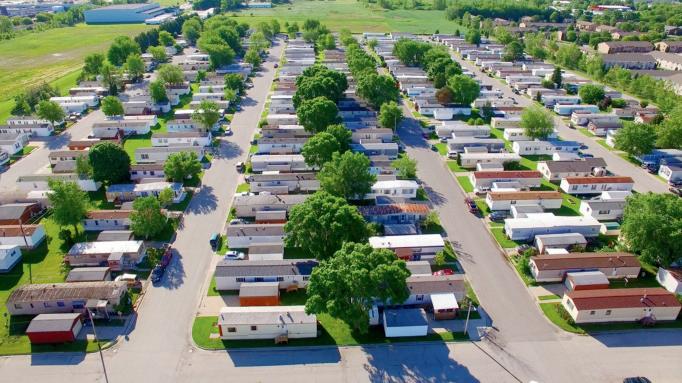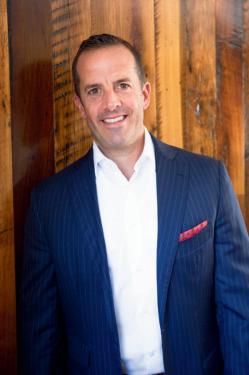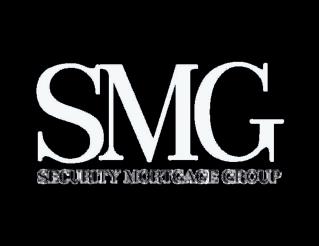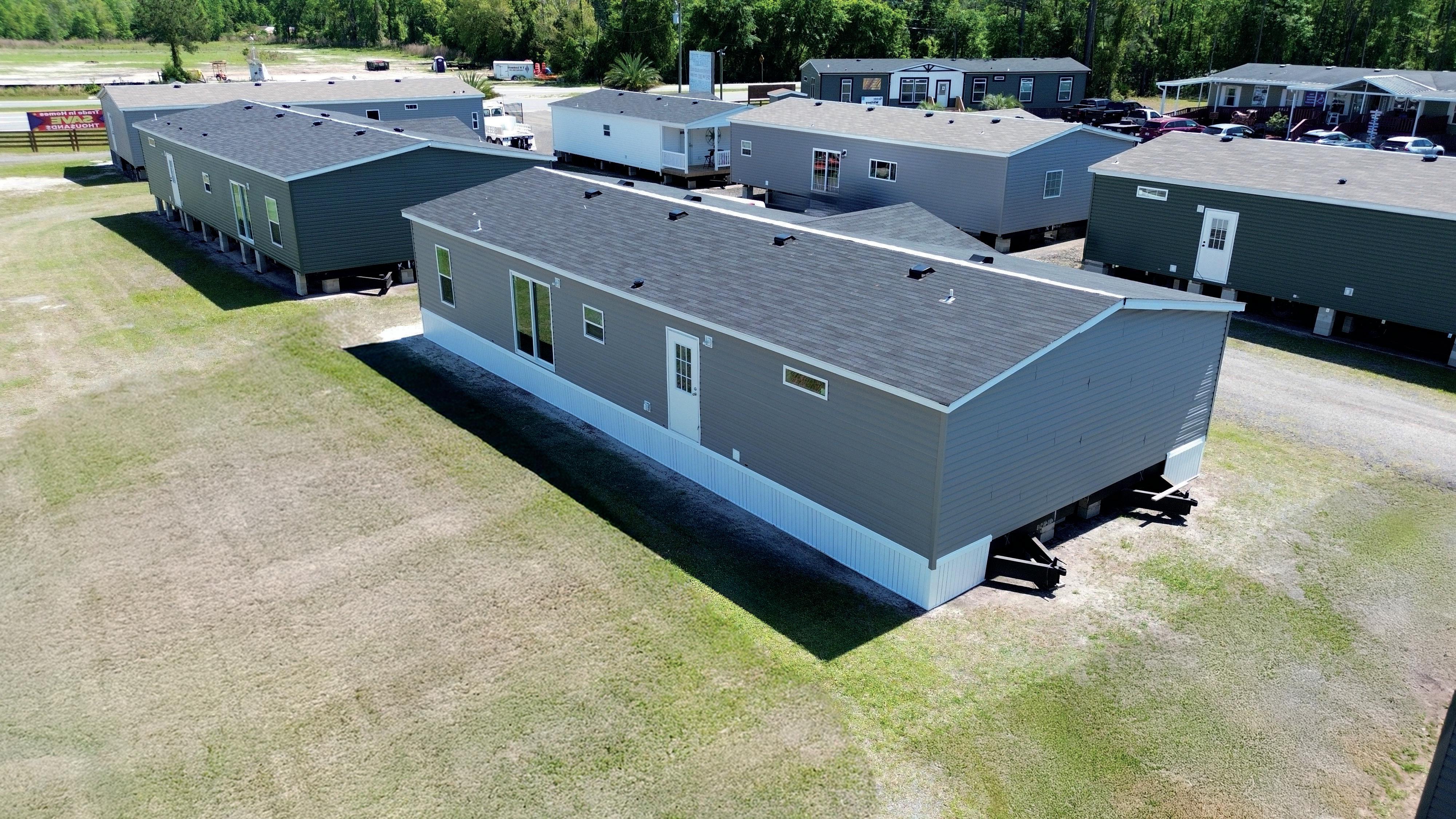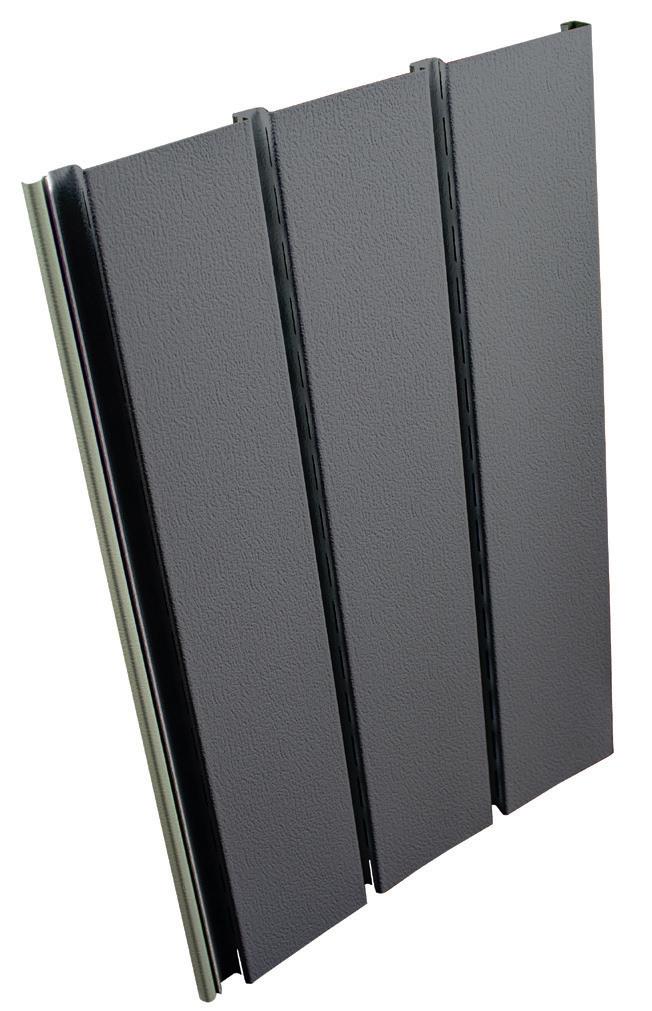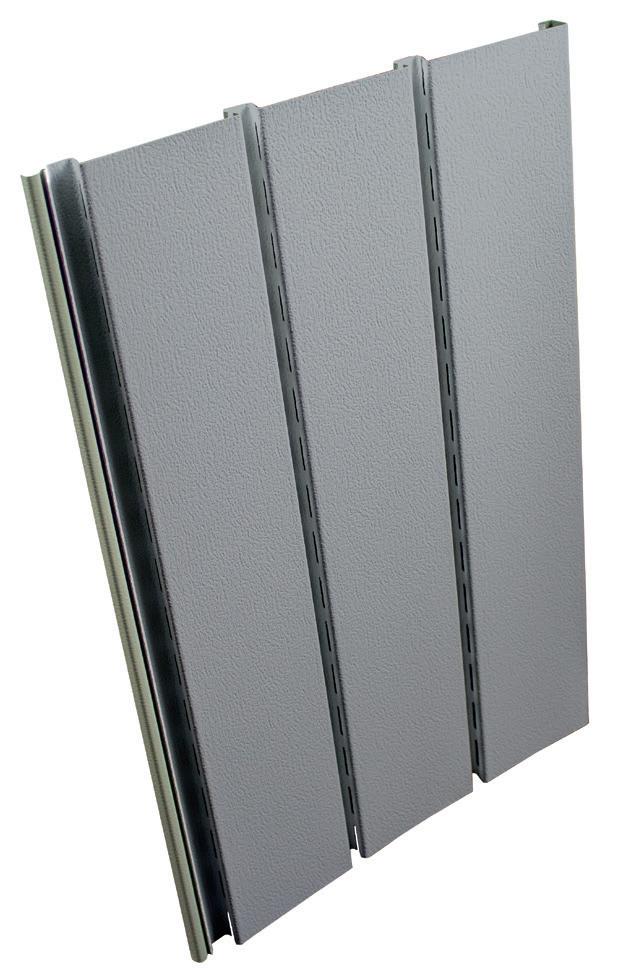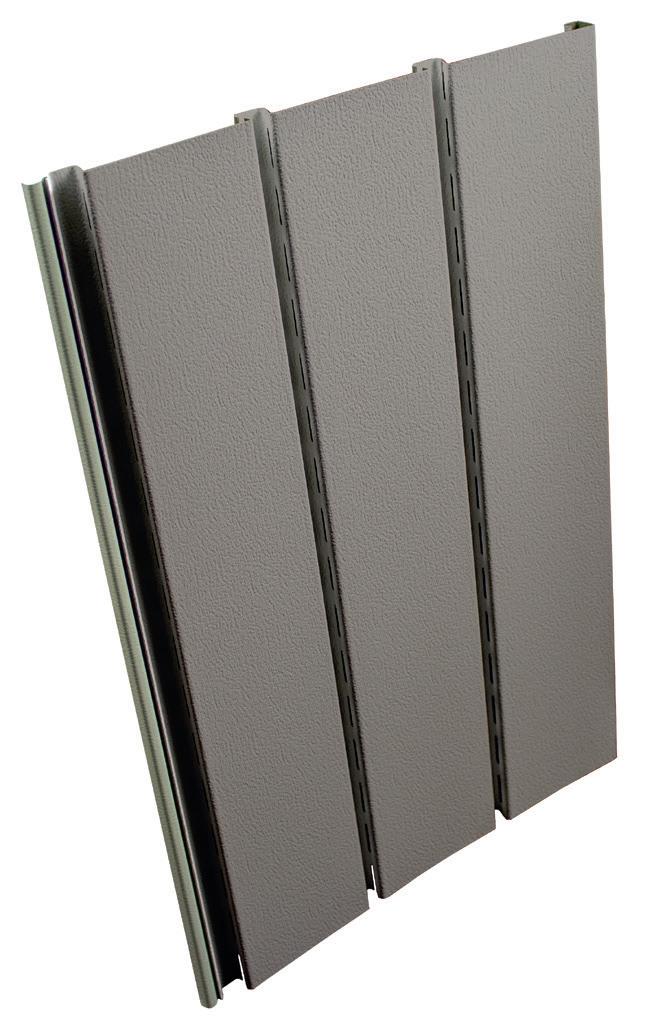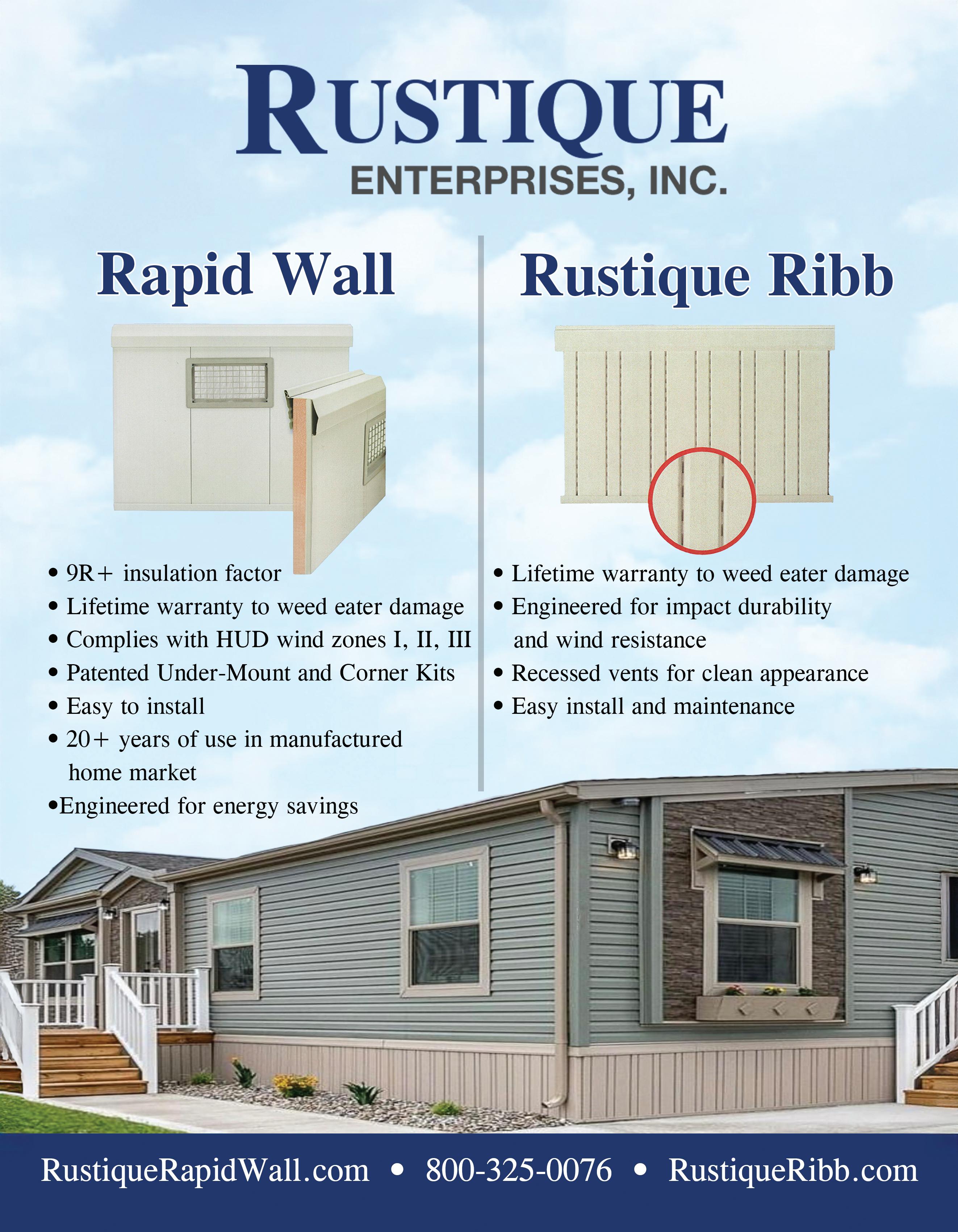




DESIGNED TO HELP YOU CLOSE MORE LOANS ZIPPYFAST!
• Focus your sales teams with lender qualified leads




• Communicate with your loan team online
• Enjoy a dedicated Community Guide to support your success


• Multiple lending options to accommodate every community strategy
• Bilingual services and ITIN lending































































































































































Designed with smart, practical features and thoughtful layouts, the PRIME series offers an accessible path to home ownership without compromising on comfort or quality.

Delivering an impressive level of design and finish at a value price point, the Embrace series of homes is ideal for price-conscious homeowners who refuse to sacrifice quality and style.

Featuring high-end architectural features both inside and out, the Altitude series is for those seeking an elevated home ownership experience and exceptional value.

PUBLISHER Patrick Revere | patrick@mhvillage.com
SENIOR GRAPHIC DESIGNER Merit Kathan | merit@mhvillage.com
CONTRIBUTING EDITOR George Allen | gfa7156@aol.com
EDITORS Dawn Highhouse | dawn@mhvillage.com, Sean Vichinsky | sean@mhvillage.com
COVER DESIGN Merit Kathan
CONTRIBUTORS Erik Cofield | Dawn Highhouse | Maria Horton John P. Kapitan | Sean Vichinsky
ADVERTISING SALES (877) 406-0232 advertise@mhvillage.com
GoliathTech Breaks New Ground In Home
Fair Housing For Home Sellers, Property Managers In The Digital Age 54 Occupi Provides New Tech for Application, Fee, Rent Payments service/supplier 60 App My Community Has Unique Solutions for MH, RV Property Communication allen legacy 62 Meet Kristian Jensen, SR.
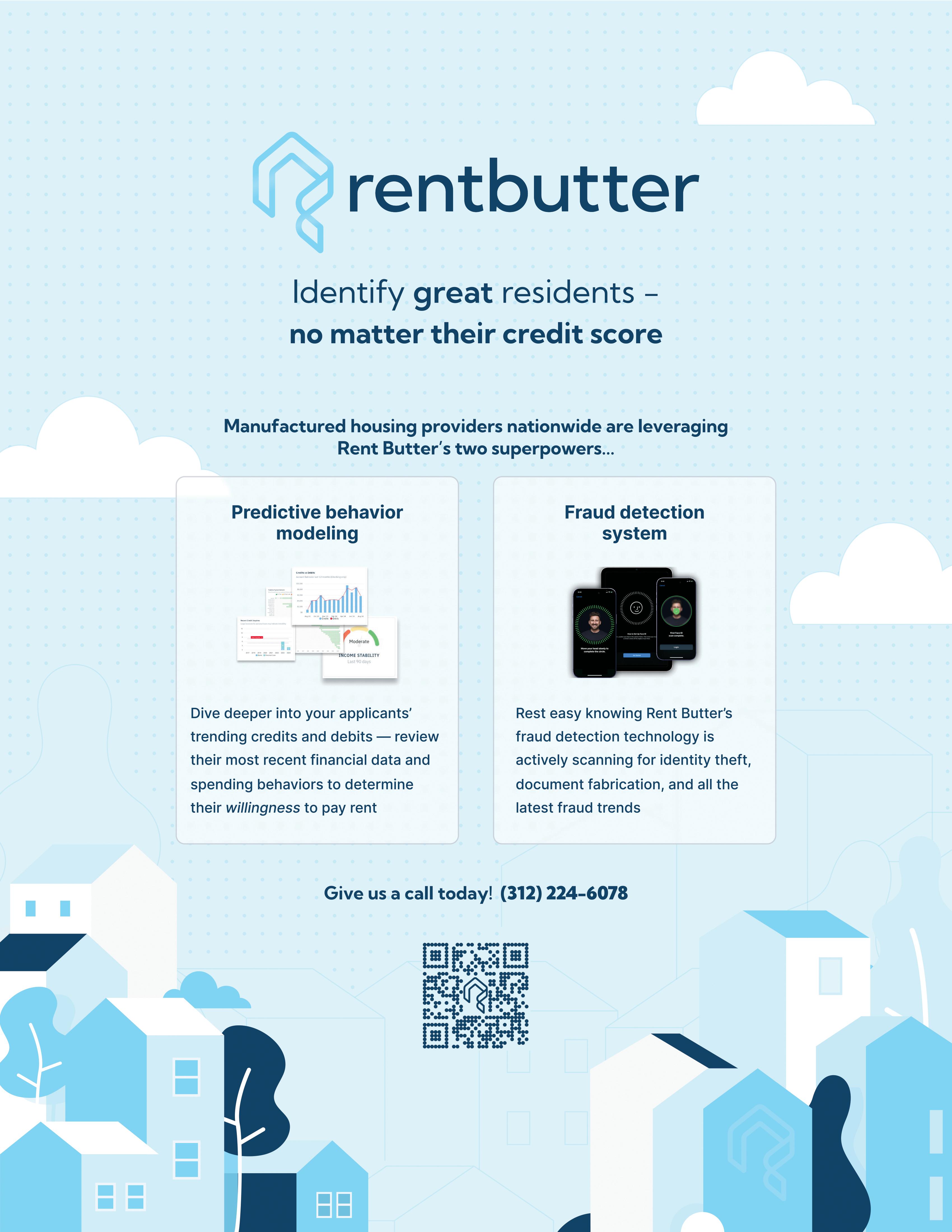
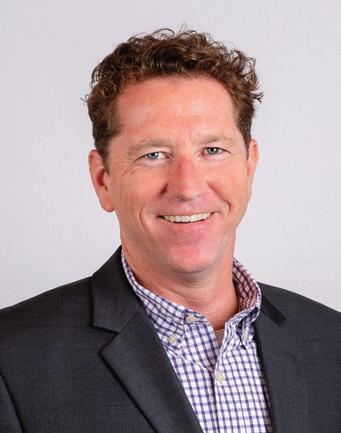
Patrick Revere is vice president of communications at MHVillage and publisher for the MHInsider magazine and blogs. His background is in print news, language, and communication.
Advances in the manufactured housing industry — including the latest software solutions, for example — have picked up in speed in recent years.
In my eight-plus year tenure alone, the HUD code has been updated three times, ADUs have turned mainstream, the exteriors of manufactured homes have begun to look wildly different — from section orientation to roof pitch and the simple use of new, interesting materials — and many new avenues toward financing have made their way to the market.
In this edition, the beat goes on!
The 2025 Tech edition introduces readers to a new way for residents to apply and pay, we take a look at an advanced anchoring system for homes, and a new contributor, industry veteran Erik Cofield, provides a piece on the difference between bots and agents.
We hope every edition of the Insider offers something new, but this one in particular takes a pointed look at the birth of some of the industry’s best new ideas!
Enjoy the reading, and perhaps the pages within provide some inspiration for future endeavors of your own.
Have Industry News, Events, or Editorial Content You'd Like to Share?
Contact our Publisher, Patrick Revere at (616) 888-6994, or patrick@mhvillage.com













In March, Yale Realty and Capital Advisors arranged a $130 million LifeCo loan for a 2,000 homesite manufactured housing portfolio in the Southeast. Additionally, Yale closed a $27.75 million manufactured housing portfolio in the Florida Keys. These, along with five deals across the Midwest, contributed to a strong first quarter for Yale, which saw $367.4 million in total production across more than 3,677 sites and units, spanning 30 properties in 12 states.
RHP Properties purchased a 226-homesite community in La Porte, Texas. Pecan Plantation has a clubhouse, two pools, a fitness center, and play area. RHP has more than 370 communities in the U.S.
California Community Plaza del Rey in Sunnyvale, California, has been purchased by Hometown America. The community has 800 homesites, sits in the heart of Silicon Valley, and has a clubhouse, fitness center, saunas and pools, a playground, and a car wash area.
Northwoods, a manufactured housing community in Branson, Missouri, has been purchased by CL3. The 50-homesite community was developed as a destination RV park in the middle 1980s and was converted in recent years to a 55+ lifestyle offering. It is a 13-acre, wooded property with large lots and off
street parking. Branson is renowned for its entertainment, music, and local attractions.
Tom Stapley of Roots Management has been named to the board of directors for Sibi, a company that integrates business management and purchasing through an automated process. “Tom’s expertise in property management and manufactured homes, combined with his forward-thinking approach, will be a game-changer for Sibi,” Sibi CEO Barrie Lindahl said. “We’re excited to leverage his knowledge of these industries to refine our platform and continue redefining what’s possible for procurement and supply chains. His insights will be invaluable as Sibi moves into its next phase of growth.”
Barry Cole, who owns Manufactured Housing Insurance Services and is an advocate nationwide for the industry, has been elected chairman of the board for the California Manufactured Housing Institute. Cole has served as chairman of the CMHI PAC, and is a longtime California resident.
More than 40 new manufactured homes recently made their way to Half Moon Bay, a milestone for the San Mateo community that provides workforce housing for agricultural workers in the area. “We made a promise — to honor the hands that feed us with dignity and safe shelter. The community, the »












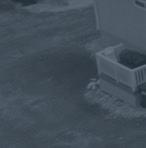
































































































































































































































































State of California, the County of San Mateo and the City of Half Moon Bay have come together to fulfill that promise in the creation of this new neighborhood,” San Mateo County Supervisor Ray Mueller said.
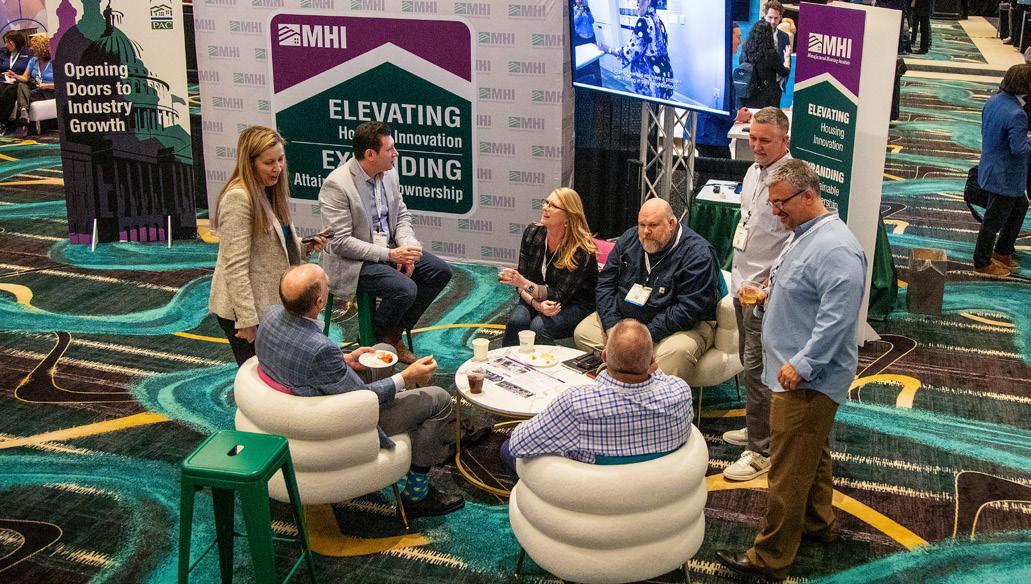

Flagship Communities, a real estate investment trust, has received an award for its community Derby Hills Pointe in Alexandria, Kentucky, receiving the 2025 Community of the Year from the Kentucky Manufactured Housing Institute. “This recognition is a testament to our team’s commitment to creating affordable, family-friendly communities that foster pride and connection among our residents. We’re grateful to KMHI for acknowledging the effort and dedication our team puts into making Derby Hills such a special place to live,” Flagship President and CEO Kurt Keeney said. The REIT runs family-oriented communities in Kentucky, Indiana, Ohio, Tennessee, Arkansas, Missouri, West Virginia, and Illinois.
Four Star Homes has started offering its expertise on manufactured housing in a new location, and with an added emphasis for land-lease customers. Elizabeth Williamson, a longtime resident and real estate agent, heads the new office in Fort Myers. She said she feels a blend of representation for land-home and land-lease would be good for the area. “Each park will be different, some are both, or one or the other,” she said. “We thought it was important to get licensed to do both.”
Fixes Error in Annual State of
MHInsider, in its May/June State of the Industry edition — on page 34 of the infographic under the heading Communities By Year Built — misrepresented the quantity and timing of construction for manufactured housing communities in the 1990s through 2024. The figures for two eras were transposed, and should have read 4.6 percent for the years 1991-2010 and 0.4 percent for the years 2011 through present. MHInsider and its team regret the error, which has been fixed in the digital volumes to properly represent the quantity and timing of manufactured
community construction. MHV


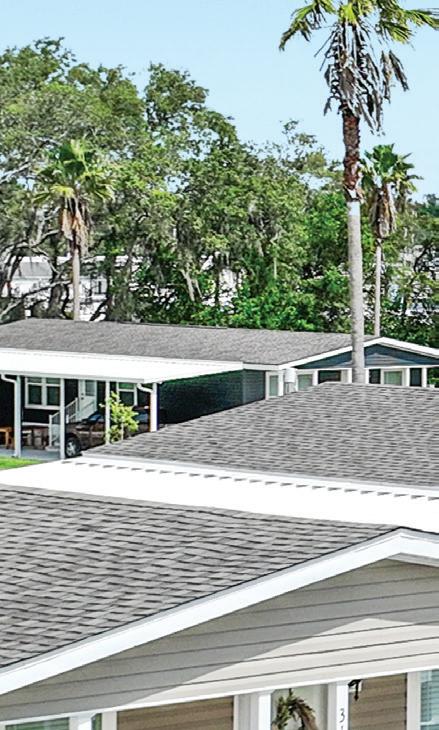



• $2.5 billion in total enterprise value
• 141 communities, 26,500 homesites, 12 states*
• Housing approximately 23,000 families
• 8,100 total acres, 4,000 acres in Marcellus and Utica Shale regions



As a publicly traded REIT (NYSE:UMH), we have been providing quality a ordable housing since 1968. Our portfolio provides high pro t margins, recession resistant qualities, reliable income streams and the potential for long-term value appreciation.


* Includes Duck River Estates and River Blu Estates, two newly constructed communities in 2024, and Sebring Square and Rum Runner, two communities owned in a joint venture with Nuveen Real Estate in which the company has a 40% interest for 2024.
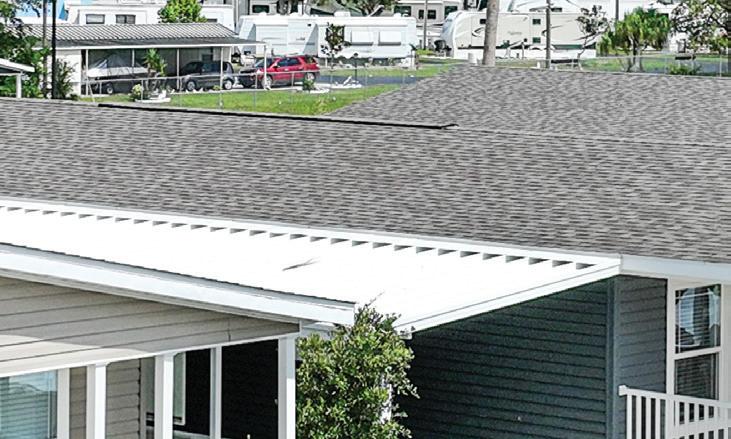
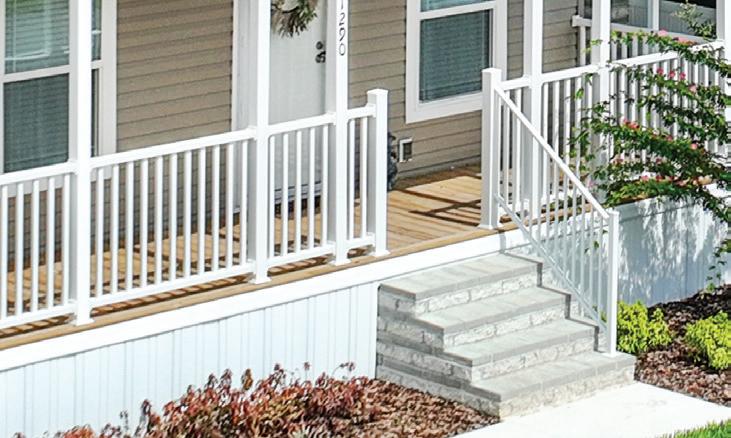




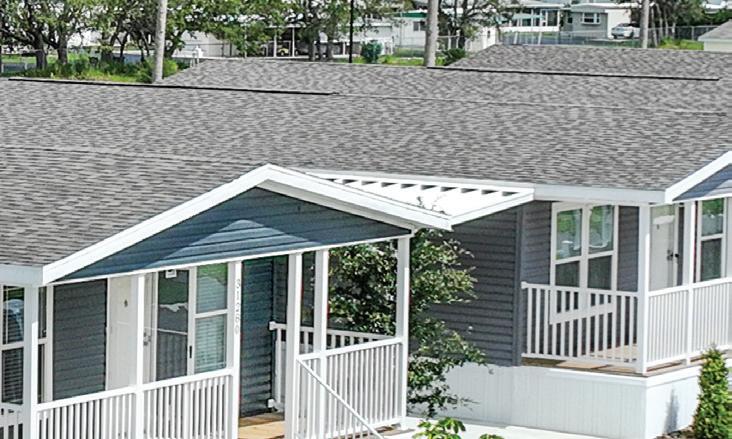
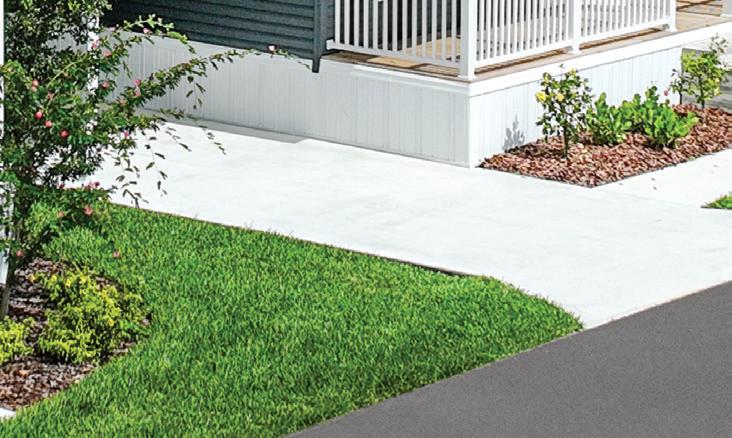




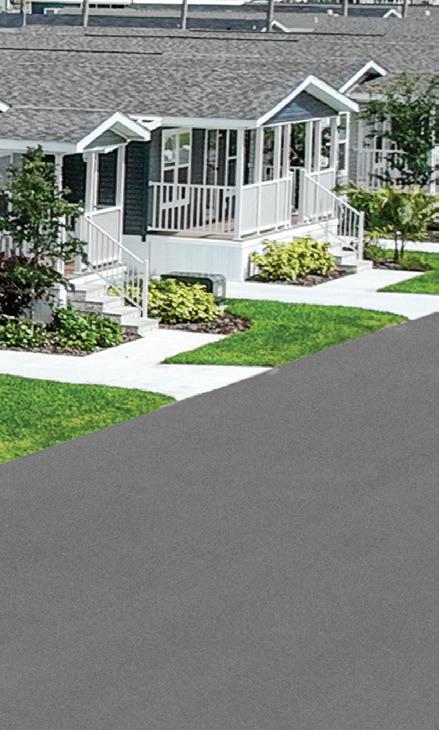


Property featured: SEBRING SQUARE, Sebring, FL Homes for Sale and Rent. Take the Tour Today! For more information, visit www.umh.reit or contact ir@umh.com








The RV/MH Hall of Fame has named Daryll Milnikel as its president following the departure of Darryl Searer, who retired after leading the way since 2012.
Milnikel was in the U.S. Marine Corps involved in recruitment, human resources, transportation, and security operations. He was in combat deployments in support of Operation Enduring Freedom.
In the private sector, he led product design and portfolio management initiatives for commercial and group insurance carriers, including G.E.H.A. and Humana. He also held business management roles supporting government insurance programs with WPS.
“Our objectives are to preserve the histories of two industries that have had meaningful impacts on the lives of families throughout North America, recognize its leaders and innovators, and educate and entertain the public,” Hall of
Fame Executive Vice President Ryan Szklarek said. “Our team looks forward to the continued work with Daryll on the improvement of all phases of our operations.”
After the Marines, Milnikel spent years in corporate and private insurance on the payer side running operations, change management, product design, development, and management.
“I’ve held leadership positions that required working with boards — both in the military and corporate sectors — often balancing governance, budget, and strategy discussions,” he said. “On the events side, my roles have included managing large-scale internal functions, public programs, and stakeholder summits.”
Milnikel grew up in the “Michiana” area and had heard about the hall and event center, but had not been there to see for himself until he met with board members about the leadership position.
“I was struck by how much history is packed under one roof. It’s a space that blends nostalgia with real innovation — and I walked away with a deeper appreciation for how RVs and manufactured homes shaped American travel and lifestyle,” Milnikel said. “It was an overwhelming feeling of wanting to be part of an organization like this and help champion the stories of these industries.”

Board Chairman Joe Stegmayer said the RV/MH Hall of Fame and Museum is in the strongest position in its 53-year history.
“As we enter the next era of growth, Daryll brings the skills and experience that will assure sound guidance for continued mission progress and development,” Stegmayer said.
Milnikel said he has deep respect for the manufactured housing industry, providing vital housing solutions to millions.
“It often is underrepresented in conversations about innovation and impact,”Milnikel said. “At the hall, part of our responsibility is to elevate and preserve that legacy alongside RVs — and I’m committed to doing that intentionally and inclusively.”
The event center is a key piece of the organization’s sustainability model, he said, and he already is actively involved in planning and executing community and industry events.
“It is still early, but I’m certainly focused on refining our internal operations, expanding our community and industry reach, and increasing engagement with both sectors we represent,” he said. “You’ll see some changes in marketing, technology integration, story telling through our museum exhibits and event programming as we move forward — all with the goal of ensuring our hall stays relevant, well-resourced, and mission-driven.” MHV







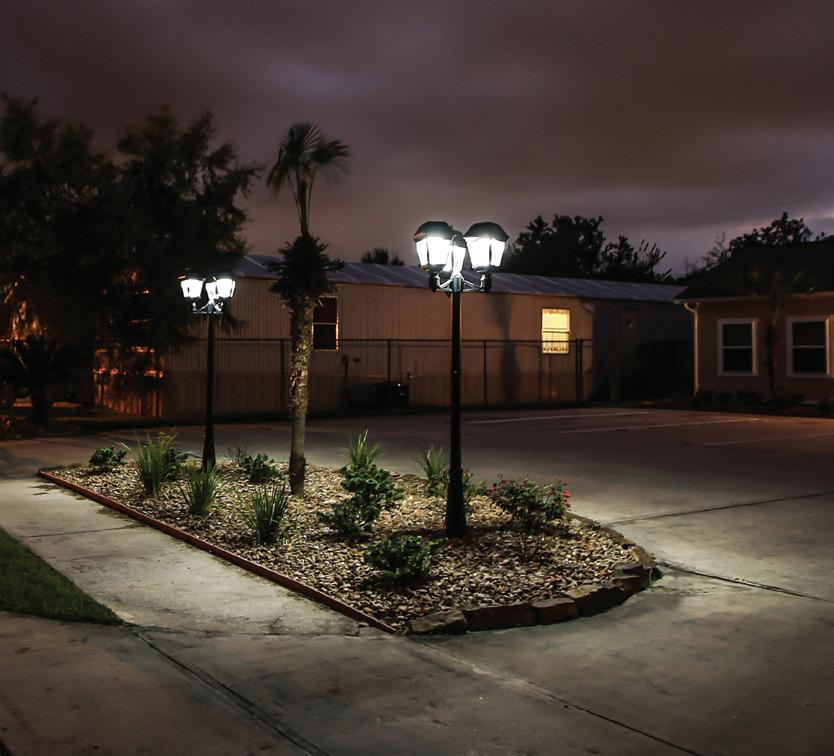



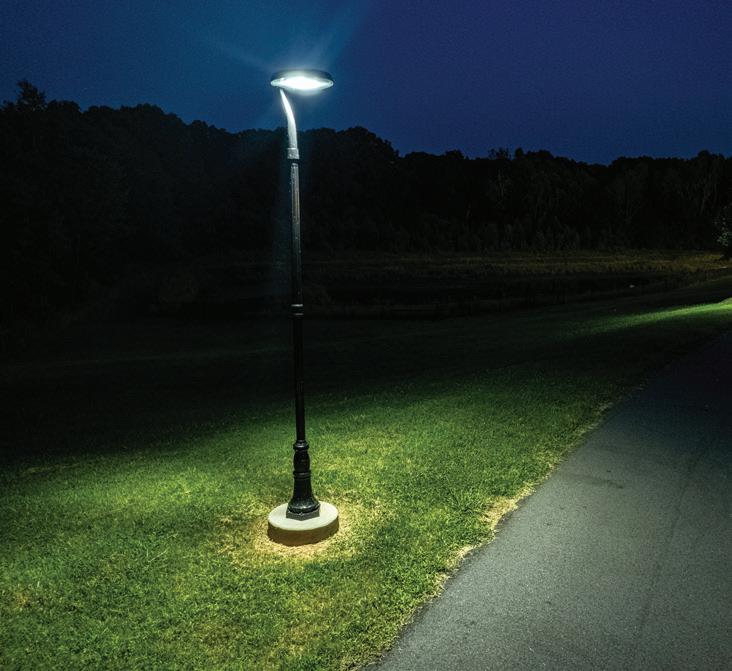



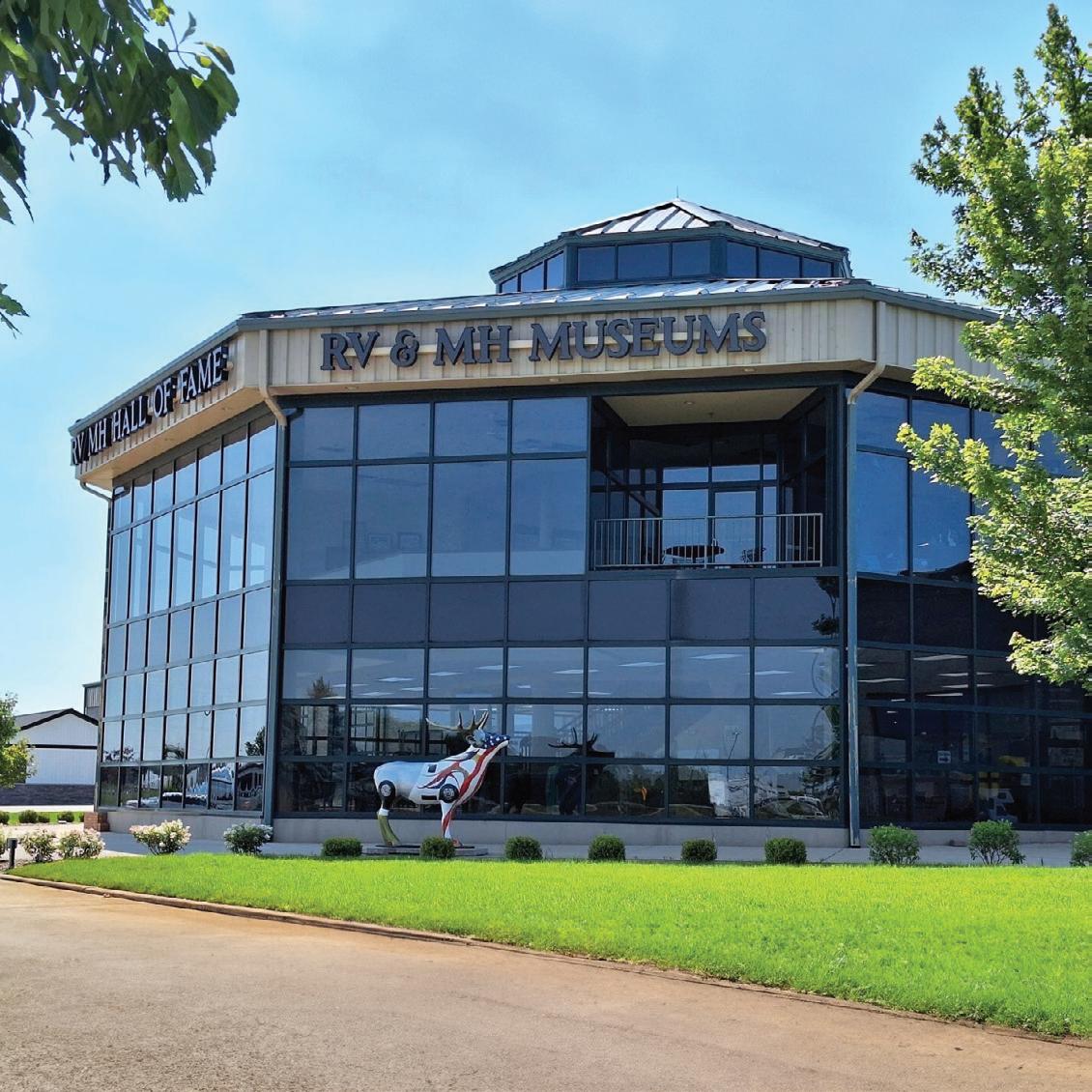
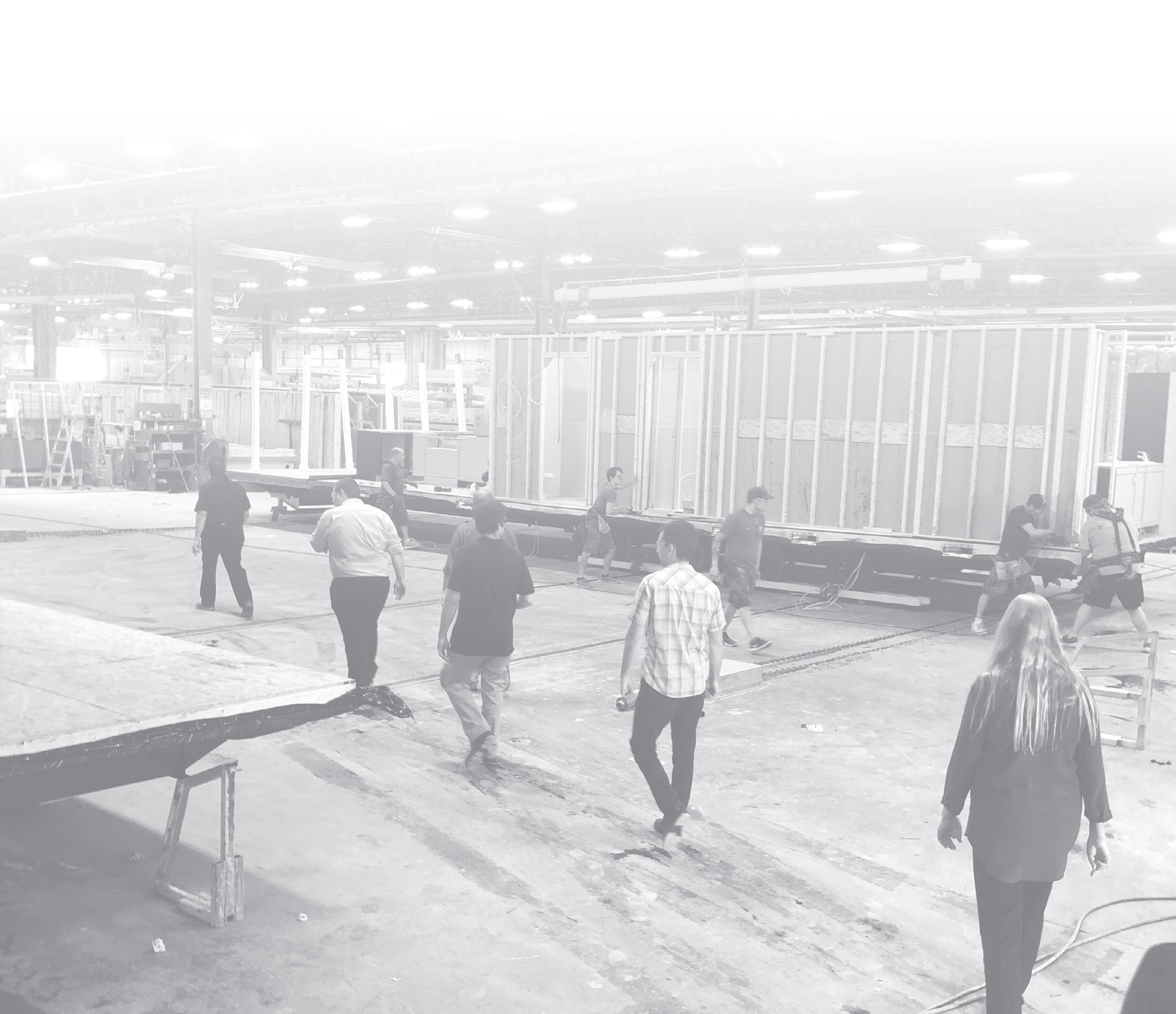
•
•
•
•


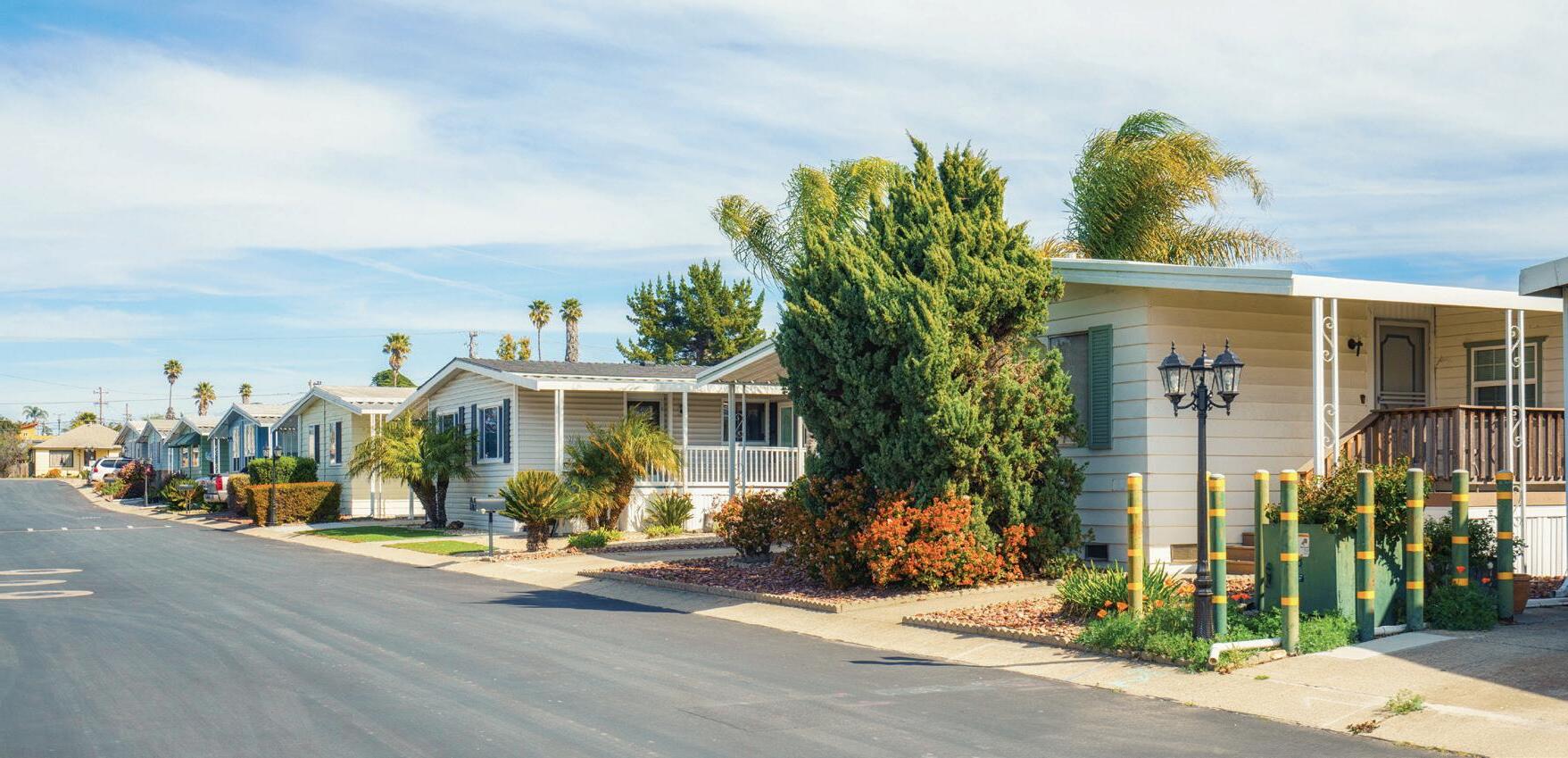




The U.S. Subcommittee on Housing and Insurance on May 14 reconvened on the topic of “Expanding Choice and Increasing Supply: Housing Innovation in America,” a conversation that had a marked increase in emphasis compared with the previous hearing on what factory-built housing can offer.
A major point of discussion throughout the hearing was the initiative to gain Congressional momentum on removing the “permanent chassis” requirement from the HUD code.
Congressman John Rose, (R) Tennessee, is a member of the subcommittee and co-author, along with and Lou Correa (D) California, of a bill entitled The Expansion of Attainable Homeownership Through Manufactured Housing Act of 2025, which among other things would remove the requirement that manufactured homes be built on a permanent chassis.
Cavco Homes CEO and President Bill Boor was the first witness to testify before the subcommittee.
“This bill represents a true expansion of the scope of housing that can be covered under the HUD code,” Boor said. “Once
this bill is passed we will still have homes built on chassis, because there’s obviously a place for that, but now we’ve got the opportunity to innovate in ways where the home can be brought down, the curb appeal can be improved, we can go multi-story, we can do a lot of innovation that particularly will allow us to overcome some of the hesitance about placing our homes in urban and suburban environments.”
The subcommittee will examine how to expand consumer choice and existing supply through the use of innovative housing solutions, Congressman Mike Flood, (R) Nebraska, chairman of the subcommittee said in his opening remarks.
“These solutions — which include innovative construction methods such as manufactured housing, modular construction, and 3-D printed housing — offer promising, lower-cost alternatives for consumers using modern technology and production techniques,” Flood said.
Flood said there is no need for more housing programs, just a need for more homes. He went on to say that housing
programs take care of the lower end of the market, for very low and low income earners, and that there are market rate projects to address the higher end of the housing spectrum.
“What we need is housing that can meet the needs of all the people that fall somewhere in between those two worlds,” Flood said.
Joining Boor in testimony before the subcommittee was Fading West Chief Business Development Officer Eric Schaefer, Virginia Center for Housing Research Director Andrew P. McCoy, and Mountain State Justice Senior Attorney Colten Lewis Fleu.
The subcommittee, in a hearing that lasted about two hours, also heard testimony on the need for Congress to clarify HUD’s authority as the sole regulator of manufactured housing. As an example of this need, Boor referenced the current lack of regulatory clarity in dealings with the Department of Energy regarding conflicting standards.
“Congress should reaffirm HUD’s sole authority over all federal constructions for manufactured homes to eliminate the conflicting set of standards that undermine HUD’s role and housing affordability,” Boor said.
Boor, who also serves as chairman of the board for the Manufactured Housing Institute, also urged the Federal Housing Administration to embrace the development of a secondary market for home-only loans, which would lower the cost of home ownership and increase housing inventory under the land-lease model.
“If we can get home-only financing through the GSEs, that reduces the monthly cost for a buyer and makes more
homes affordable,” Boor said. “That’s a huge opportunity.”
Members of the subcommittee, regardless of political party or home district, showed an abundance of support for finding answers to the nation’s housing crisis.
“There is, as I hope you can see, some bipartisan support for the new, innovative ways in which we can reduce cost to build decent housing for our constituents,” Ranking Member Emanuel Cleaver II, (D) Missouri, said.
Members also listened to testimony on the need to urge states and local governments to ease restrictions on home size in urban areas, particularly zoning restrictions that either directly or indirectly have a negative effect on the ability to use manufactured and modular housing. MHV

The subcommittee will examine how to expand consumer choice and existing supply through the use of innovative housing solutions, Congressman Mike Flood, (R) Nebraska, chairman of the subcommittee, said in his opening remarks.
“These solutions — which include innovative construction methods such as manufactured housing, modular construction, and 3-D printed housing...”

By Maria Horton
For the second year, longtime community owner and insurance provider Barry Cole has hosted an event in Costa Mesa, California, to honor the stellar work of women in the manufactured housing industry.
Cole, who owns and operates Manufactured Housing Insurance Services, said a pair of colleagues who are women, several years ago, mentioned how often there are luncheons and awards that focus on the work of men in the industry.
“They were right,” Cole said. “And it made me think ‘What could I do to establish a yearly program for women who might not have had the recognition they absolutely, surely deserve?’ Some have made their own success, and some have made others successful.
“This group is the genesis of those conversations,” Cole said.
The 2025 Manufactured Housing Women of Distinction gathering took place on June 13 at the Park Club in Costa Mesa, California. There was a pre-dining mixer, a welcome from the host, a menu that included an option for a rack of lamb or salmon, and the awards ceremony during which each person honored receives a personalized, engraved silver serving plate that can be mounted or displayed.
Cole said part of the inspiration for organizing an annual event to recognize industry women and the great work they’ve done is the experiences he has had working with and for women.
“I have had many minimum wage employees who have become successful like two of the recipients last year, Belin Ramirez, who is now president of Express Escrow, and Natalie Costaglio, who is president of MCM,” Cole said.
“I have worked easily, effectively, and efficiently with and for many women,” he added. “I have collaborated with Vicky Derieg for over a half century and I worked for Chelu Travieso, an MH legend who was a mentor and friend. Those are just some examples. Oh yeah, and my wife Donna. We have our 40th anniversary in September.”
Many of the women honored in 2024 attended the event to support the new honorees.
“Onward, hopefully, we will have all MH associations and non-profits join in publicizing the efforts behind this event, bringing awareness of great manufactured housing women achievers,” Cole said. “But you are among the first to get the plate, so spread the word to your friends and associations.” MHV
Maria Horton serves as the director of marketing and is a regional manager for Newport Pacific Capital Company, Inc., a full-service property management company located in Irvine, Calif. Horton holds her MCM, MHM, CAM, CCRM, CMCA, and AMS designations and also is a licensed manufactured housing salesperson.

“Onward, hopefully, we will have all MH associations and non-profits join in publicizing the efforts behind this event, bringing awareness of great manufactured housing women achievers”
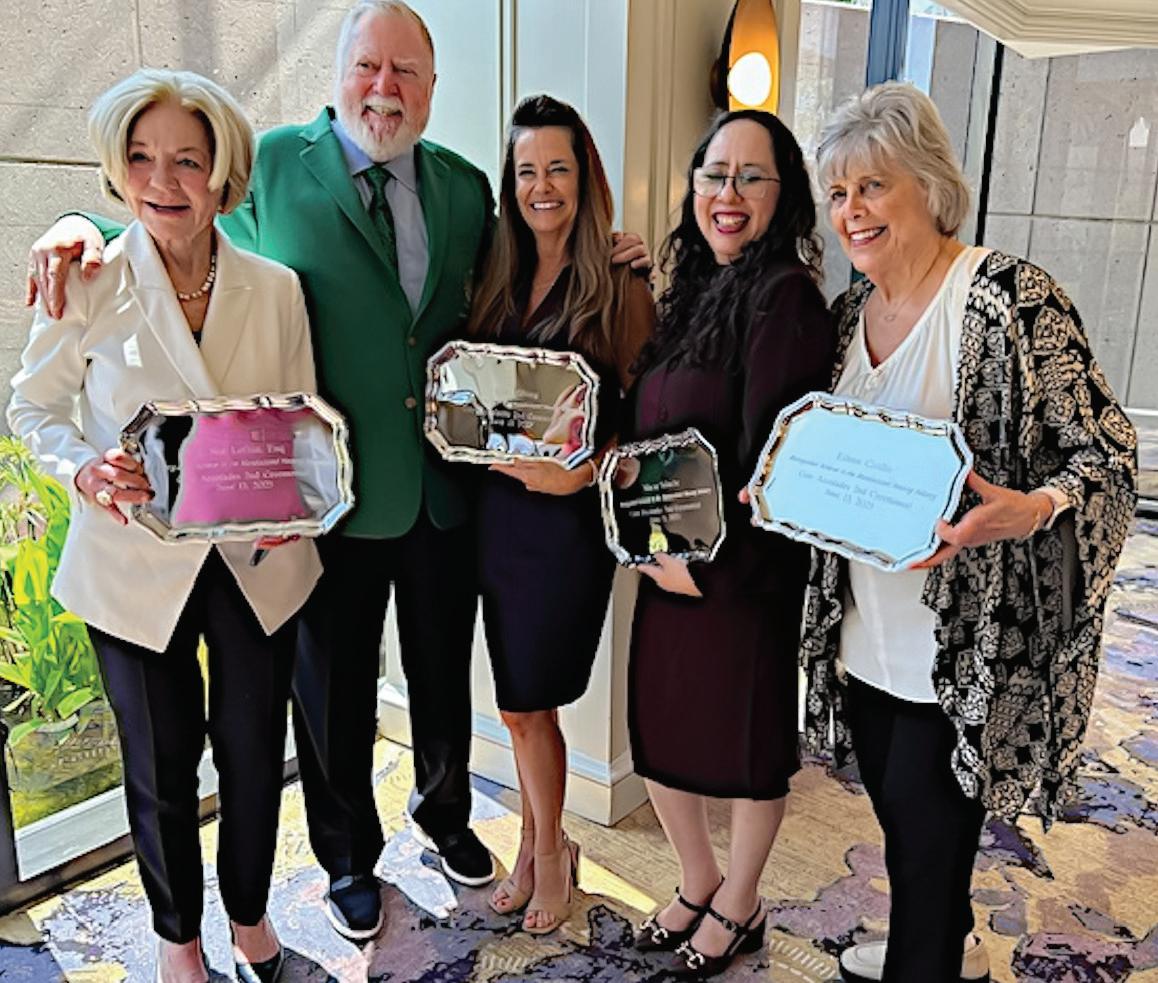
Rheannon Arciniega - Bessir-Casenhiser
Victoria Brennan - Horizon Homes
Eileen Cirillo - Star Management
Susy Forbath - Cozen O’Connor
Deneen Gansert - Skyline Homes
Betsy Gibson - Boudreau Pipeline
Deena Gomez - Starcrest Escrow
Candy Holcombe - Watt Capital Developers
Patricia Jones - Universal Homes
L. Sue Lofton - Loftin Bedell PC
Nicole Luu - Galaxy Homes
Jean McGrath - Blue Carpet Homes
Julie Paule - Paule Consulting
Maria Solache - Manufactured Housing Insurance Services
Christie Warkin - Blue Carpet Homes








If you have an event or gathering you would like to have listed with MHInsider, please scan
the QR code below:

Saturday, July 26 — Monday, July 28, 2025
Orange Beach, Ala. • Perdido Beach Resort
Join the Alabama, Louisiana, and Mississippi manufactured housing associations to attend banquets, educational seminars, and state-specific continuing education. Attendees can explore an upscale marina near the resort that offers deep-sea fishing, dolphin excursions, boutique shopping, a day spa, and local eateries. Of course, a round of golf is nearby at a number of signature courses. Registration, exhibit, and sponsorship opportunities are available.
Monday, Aug. 18, 2025
Elkhart, Ind. • RV/MH Hall of Fame and Conference Center
The RV/MH Hall of Fame each year invites industry professionals, family, and friends to celebrate the recent lineup of hall of fame inductees. The event starts with a cocktail mixer, followed by dinner and the induction ceremonies. The hall in Elkhart details the careers of hundreds of RV and MH professionals, and includes a library, event center, and museums for each industry.
Tuesday, Aug. 19 — Wednesday, Aug. 20, 2025
Elkhart, Ind. • RV/MH Hall of Fame and Conference Center and Northern Indiana Homebuilding Facilities
Experience two full days of factory tours and learning for retailers, community owner/ operators and vendors from around the nation. Attendees will have the chance to come together to learn about the latest trends in product development, home building, management, finance, and sales.
Saturday, September 6 — Wednesday,. September 10, 2025
Washington, D.C. • National Mall
The U.S. Department of Housing and Urban Development each year hosts the Innovative Housing Showcase to provide a large, public display of innovative designs, structures, and advances in housing, particularly with a mind toward energy efficiency, durability, and availability. Homes on display at the National Mall will include manufactured homes from some of the industry’s top builders.

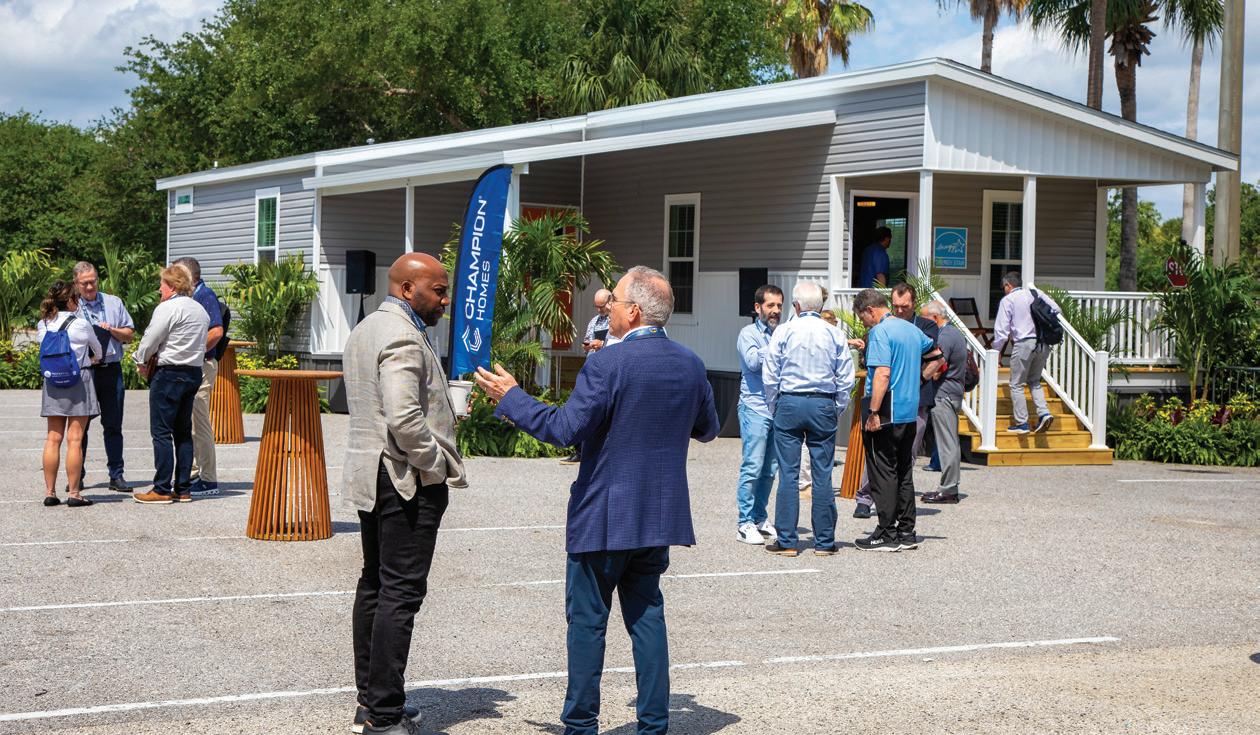
Manufactured housing professionals take time for conversation and enjoy the mild Orlando weather during Congress and Expo in early May. Champion had a trio of new homes to show; a multi-section, a single-section, and an accessory dwelling unit. Image courtesy of MHI/Shawn Spence.

Industry attorney Dan Weber draws back his golf swing in anticipation of hitting off the tee his firm, SMGB Law, sponsored for the 2025 MHI Congress and Expo at the 19th Annual Oliver Technologies Golf Open played on the course at Rosen Shingle Creek Golf Club in Orlando.
The interior of the Sawgrass, a unique community oriented single-section home that accommodates a carport. The home has ample space for a great front porch, a front living area, kitchen and dining, a pair of bedrooms, two baths, plenty of storage, and a utility room rear access door.

MHVillage and Datacomp garnered a lot of attention in Orlando with an island tiki-themed booth rich with detail that included tropical shirt and tiki mug giveaways, and discounts on popular product offerings if attendees arrived with the right key to a treasure chest. On Tuesday afternoon of the show, the companies brought in a bartender to serve signature Painkiller cocktails, complete with Pusser’s Rum. Image courtesy of MHI/Shawn Spence.

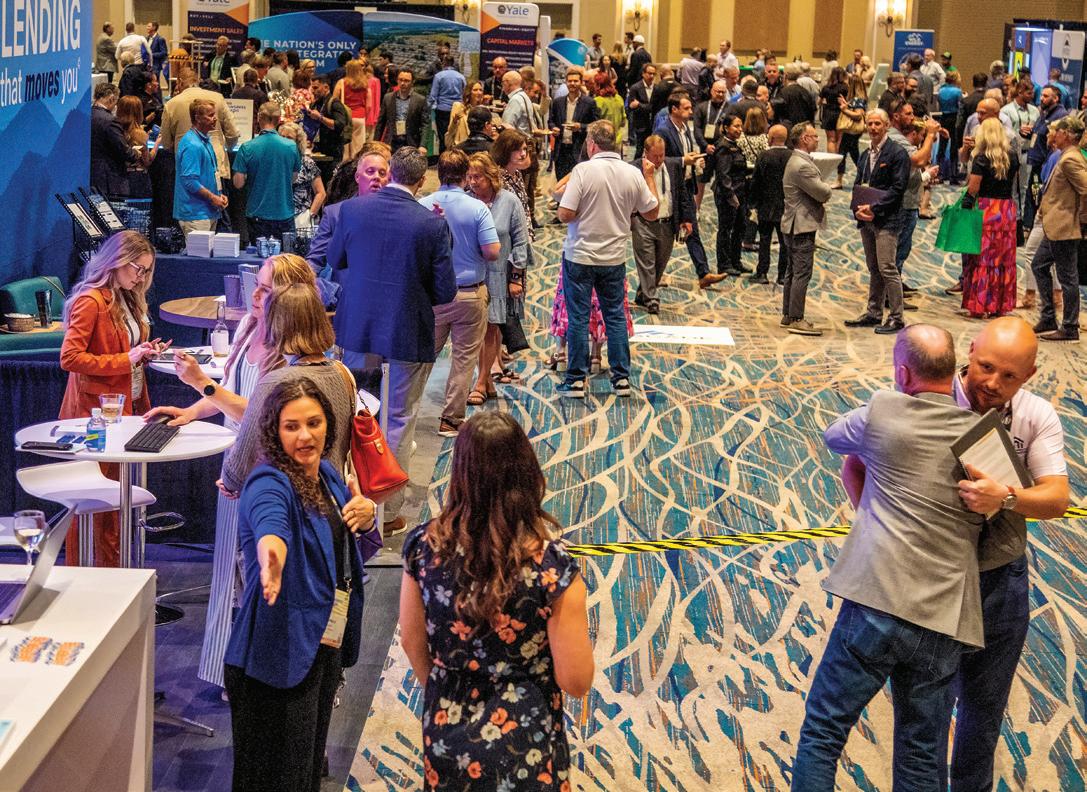
Cavco Industries CEO and President Bill Boor, foreground left, sits with U.S. Department of Housing and Urban Development Secretary Scott Turner in front of a full room at the Rosen Shingle Creek conference center in Orlando. Turner in his early comments, and the pair in a Q&A session, covered a lot of ground, with themes that included overcoming adversity, having faith in the mission, and building thoughtful partnerships. “It’s easy to see how manufactured homes can dramatically expand the supply of affordable housing for Americans who need it the most,” Turner said. “But this industry is about more than just quantity, it’s about quality.” Image courtesy of MHI/Shawn Spence.
The exhibitor’s floor at the 2025 Congress and Expo at Shingle Creek in Orlando maintained steady traffic throughout the event. Industry professionals were set up to meet customers and provide the product and services that optimize the home buying and community living experience. Image courtesy of MHI/Shawn Spence.
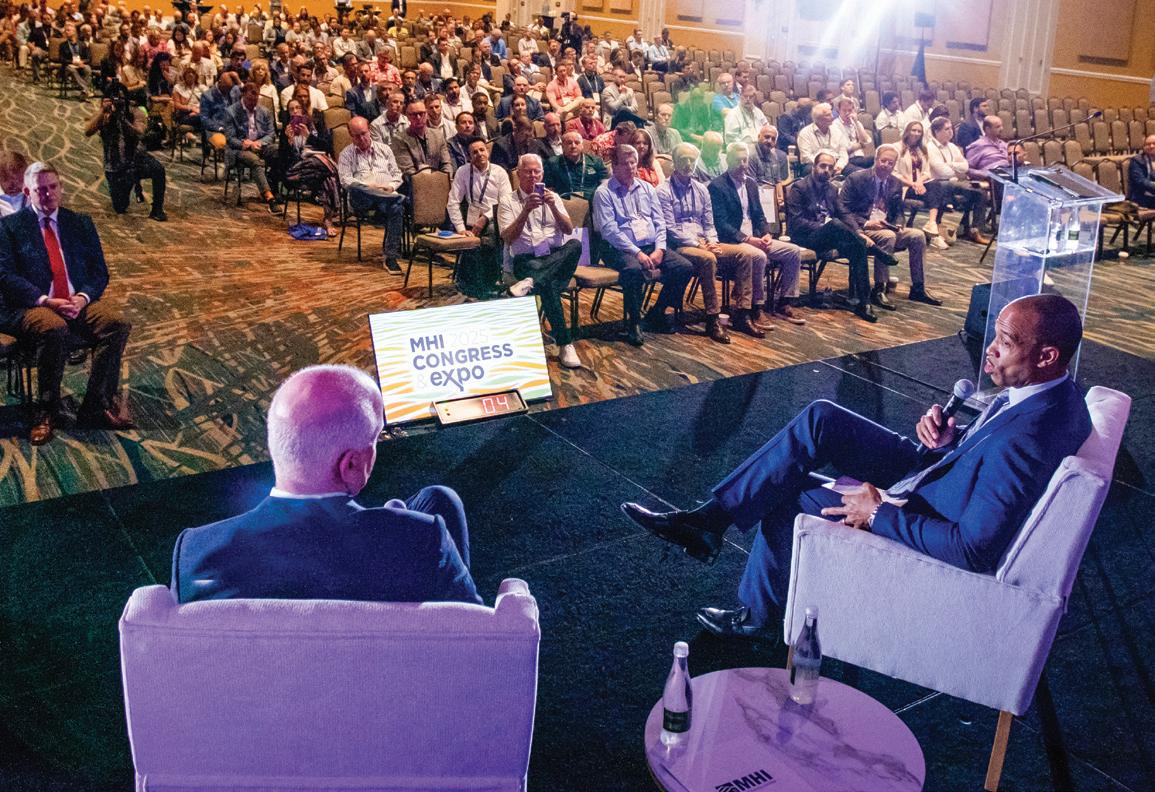
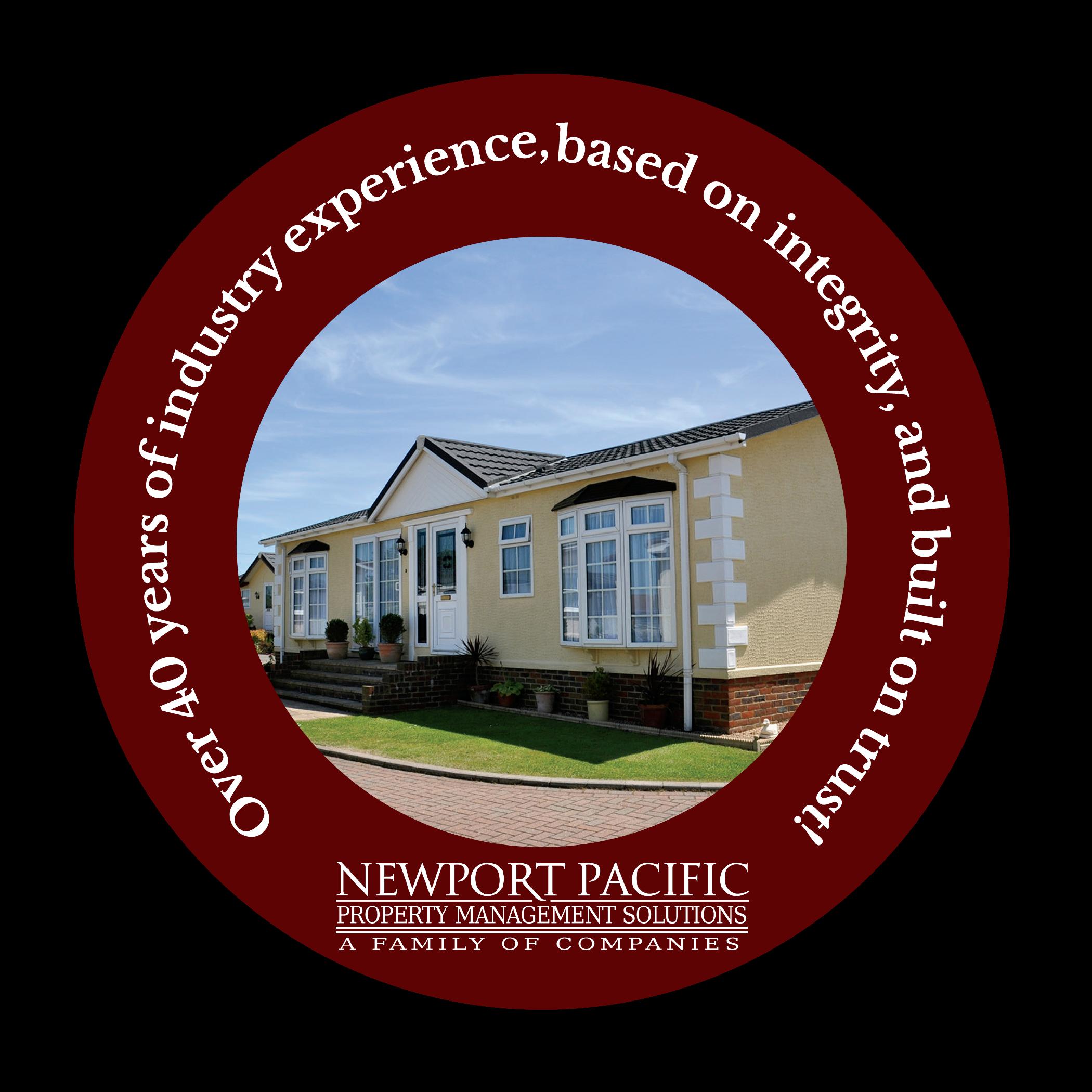











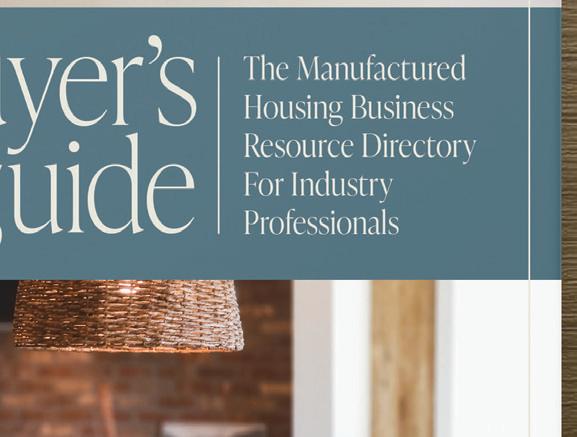











‘The American Home is the American Dream’
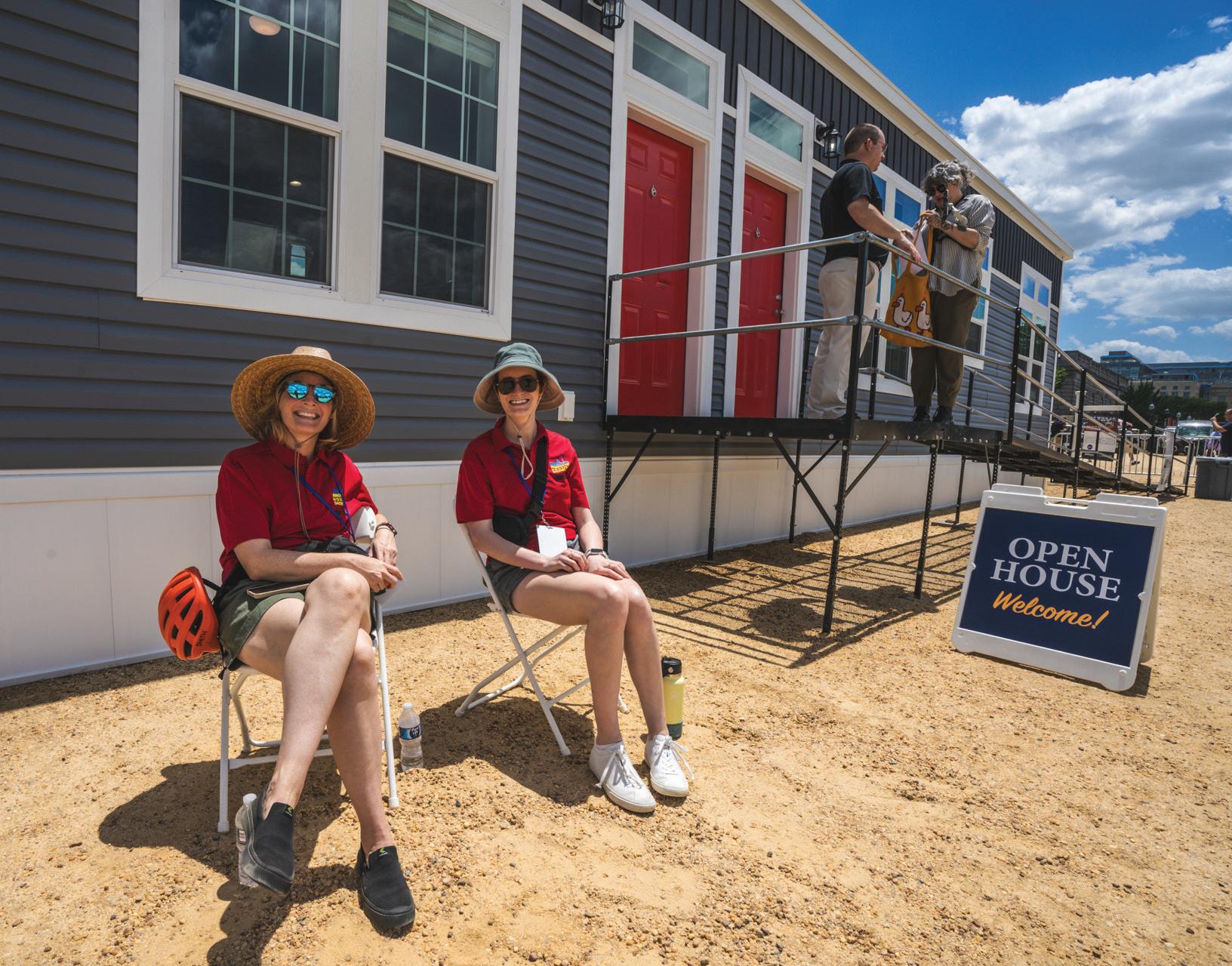
The Innovative Housing Showcase, an annual event that exhibits and promotes the latest techniques in home building, returns for 2025 in a new season. The event, which has taken place in June in recent years, will be held Sept. 6-10 on the National Mall in Washington, D.C.
“I am thrilled to welcome back the Innovative Housing Showcase to the National Mall as we commemorate 250 years of American independence,” HUD Secretary Scott Turner said. “During this special celebration we will remember that through the decades the American Dream of homeownership ties generations together and is a core part of our nation’s excellence.
“HUD is proud to highlight housing solutions that honor our past while building a
strong, bright future for American homeownership,” Turner said. “I look forward to seeing the talented exhibitors in Washington and presenting what I know will be a remarkable showcase to the American people.”
This year’s showcase will highlight “history-defining events in housing, the pride of achieving the American Dream of homeownership, and the future of housing innovation” HUD stated in a press release on the event.
The Manufactured Housing Institute, the national advocacy organization for manufactured and modular housing, will partner to have homes on the hill during the event. It will host a reception at the
homes and will work with stakeholders to organize a day on Capitol Hill for conversations on industry objectives with elected officials and staff.
The annual public event raises awareness of innovative and affordable housing designs and technologies that have the potential to increase housing supply, reduce barriers to construction, and build for stability while reducing housing expenses for owners and renters.
Interactive exhibits will include fullsized prototype homes and innovative building technologies.
In addition to the exhibits, visitors will have the chance to attend expert-led discussions, workshops, and
live demonstrations that address defining moments in the history of housing, as well as affordability and resilience in the future of housing.
The Innovative Housing Showcase is a family-friendly event that typically hosts more than 5,000 people, including policymakers, housing industry representatives, media, and the public.
HUD is working with exhibitors in all sectors of housing for the showcase. As the event date nears, more show details can be found on the HUD website. Showcase organizers can be reached at housingshowcase@hud.gov. MHV
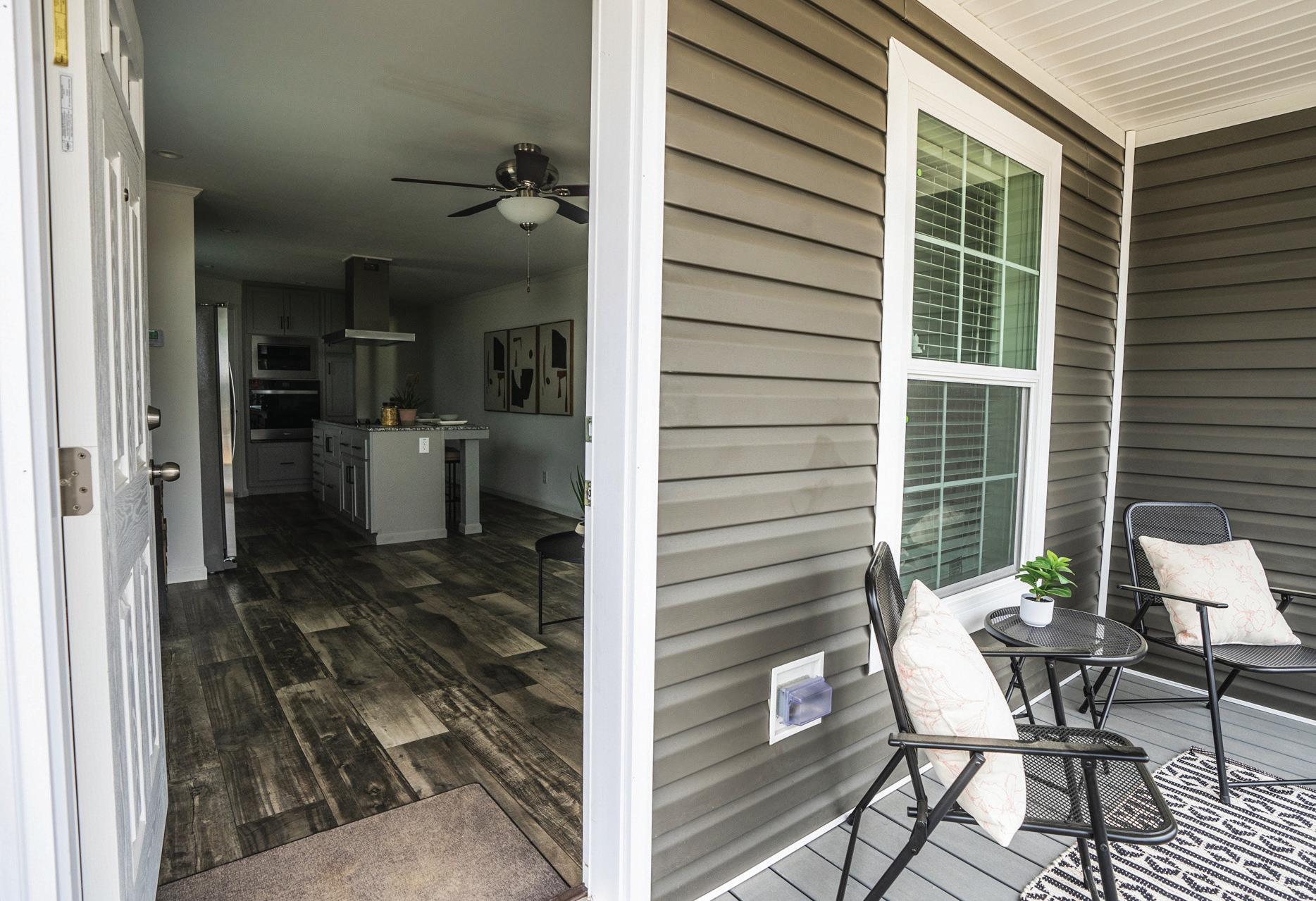

Why HUD Code Builders Should Care and What to Know About AI-Enabled Software
By Erik Cofield
As the home building industry continues to evolve, so do the tools that power it. Many custom and production builders, remodelers, manufacturers, communities, and dealers are now adopting Enterprise Resource Planning [ERP] software that includes artificial intelligence capabilities. But when diving into the AI features of modern ERP platforms, you’ll often hear two terms tossed around: AI bots and AI agents
While they may sound similar, they serve very different purposes — and knowing the difference can help you choose the right ERP system for your business, although really, ideally, anyone in residential construction should look for an ERP system that has both.
Let’s walk through the core differences between AI bots and AI agents, how each functions, and how home builders of any type or size can leverage them to streamline operations, reduce overhead, and drive growth. The first time someone sees what AI agents can do, they are usually both a little scared and a little amazed.
AI bots are essentially rule-driven automation tools that respond to specific
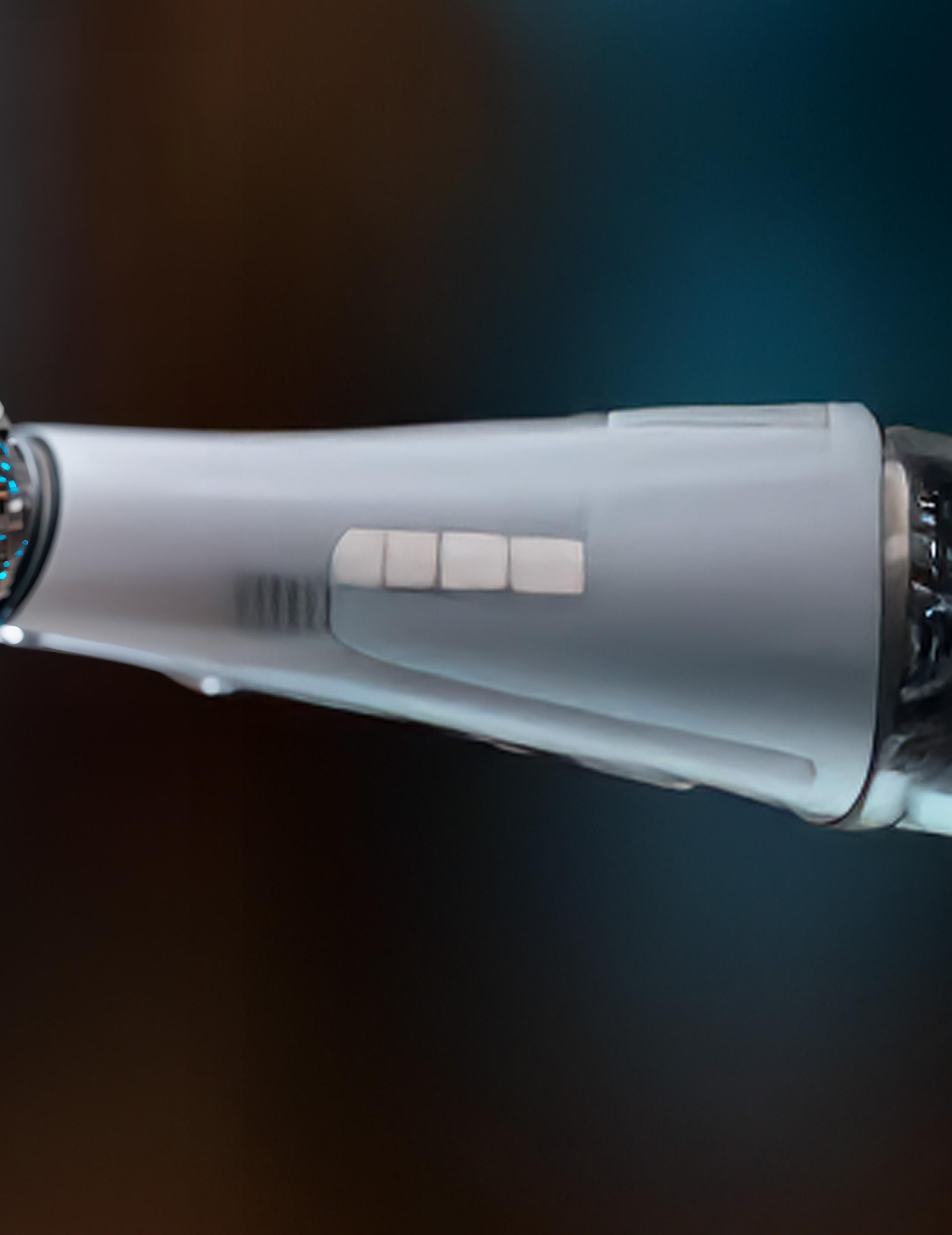
prompts or commands. You’ve likely interacted with them already — think of customer service chatbots or virtual assistants that schedule meetings, or a web form that answers some questions, but can’t really hold much of a conversation.
In ERP systems for residential construction, a few of the many uses for AI bots are to…
• Answer basic queries (“What’s the budget status of Project A?”)
• Generate reports (like monthly labor costs or inventory summaries)
• Automate repetitive tasks (such as sending payment reminders, processing invoices, or updating schedules and notifying trades contractors or consumers)
AI bots operate using predefined logic, often enhanced by natural language processing, or NLP. They’re reactive — they wait for a user command and then execute a task based on programmed rules or AI-enhanced understanding. They are considered “dumb” compared to AI agents, which are considered “smart” because an AI agent, once set up and trained, can take autonomous actions. »

For example, in an ERP system, you might type: “Show me all projects that are over budget this month.”
The AI bot recognizes the intent, pulls relevant data from your financial module, and returns a list almost instantly.
Key Characteristics of AI Bots: AI bots are…
• Task-oriented and reactive
• Fast with low-complexity execution
• Ideal for structured data tasks
• Limited in autonomy — they don’t make decisions without instruction
AI agents take things a step further. These are autonomous or semi-autonomous systems that actively monitor, learn from, and interact with your ERP environment to make decisions or recommendations.
Instead of waiting for your command, AI agents might notice that your drywall inventory is running low on a fast-moving project and proactively initiate a purchase order — or alert your procurement team.
In an ERP for residential construction, use cases include AI agents helping with:
• Project scheduling optimization
• Labor forecasting
• Vendor performance analysis
• Predictive maintenance on equipment (factories/workstations)
• Supply chain risk management
• Inventory management
AI in an ERP isn’t just a buzzword anymore — it’s a strategic advantage for builders ready to scale smarter and work more efficiently. AI bots can help a team move faster, while AI agents help the team to build better by offering insights, automation, and predictive intelligence.
• Creating purchase orders
• Creating an estimate (from, say, a pdf)
AI agents use a combination of machine learning, business rules, and real-time data to assess situations and make context-aware decisions. They may also collaborate with other systems (or agents) to complete more complex workflows. In the future, the situation will be: “My AI agent will interact with your AI agent.”
Unlike bots, agents don’t need constant direction — they continuously monitor your ERP environment, identify issues or inefficiencies, and take action, or escalate issues, based on what they learn.
• Proactive and decision-capable
• Context-aware and learning-enabled
• Ideal for complex, dynamic environments
• Able to collaborate with humans and other AI agents
Here’s where AI bots shine in an organization’s ERP:
• Real-Time Access to Key Metrics: Instead of digging through menus, just ask, “What’s the ETA on framing materials for Lot 12?”
• Task Automation: Have a bot handle repetitive updates, such as progress reports or permit application status changes. »
When you need an appraisal on a new or pre-owned manufactured home, go with the time-tested experts on market-based comparable valuations since 1987.
At Datacomp, manufactured homes are our singular focus — and you won’t find more expertise, specialization, or reliability anywhere else.
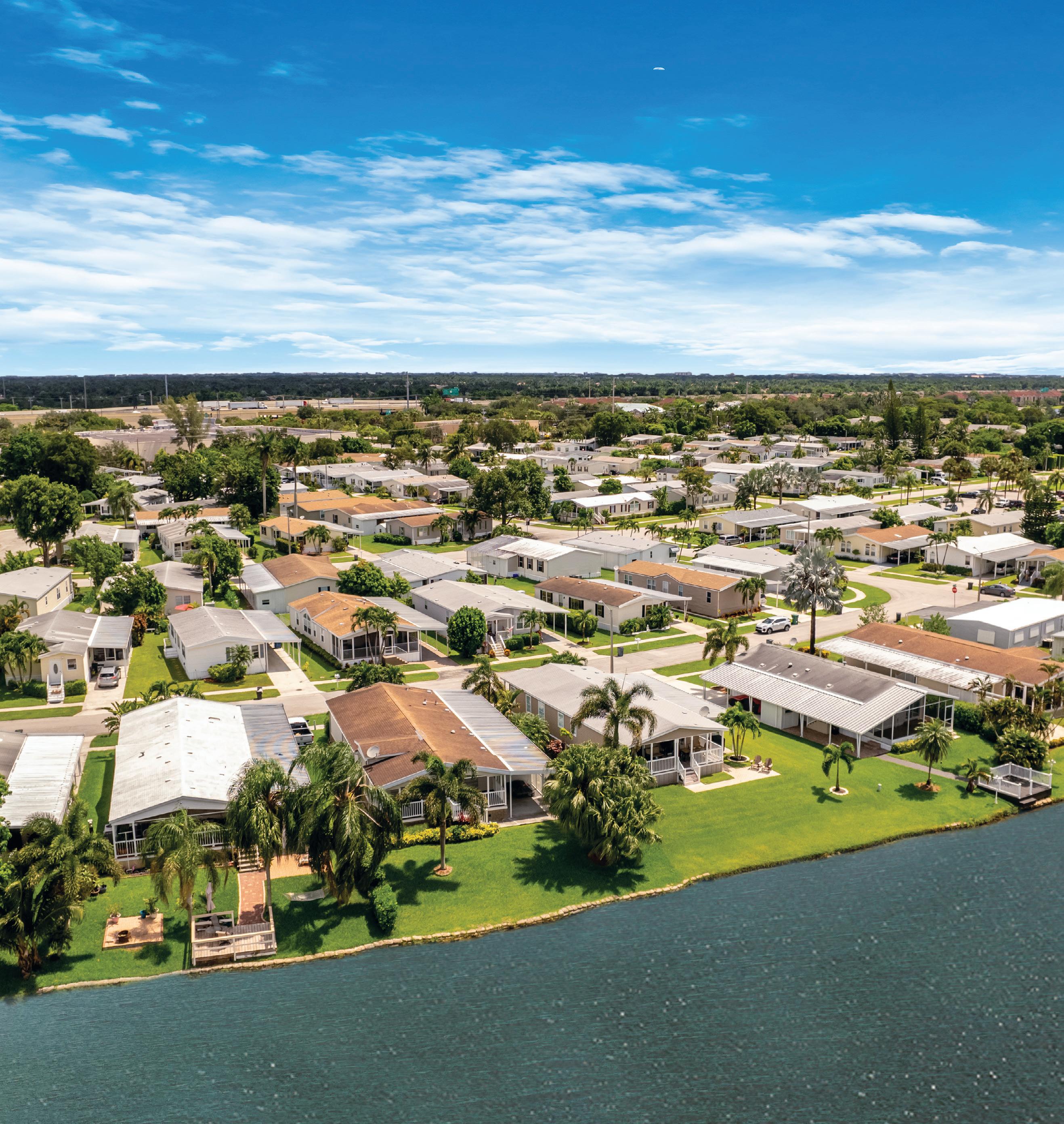




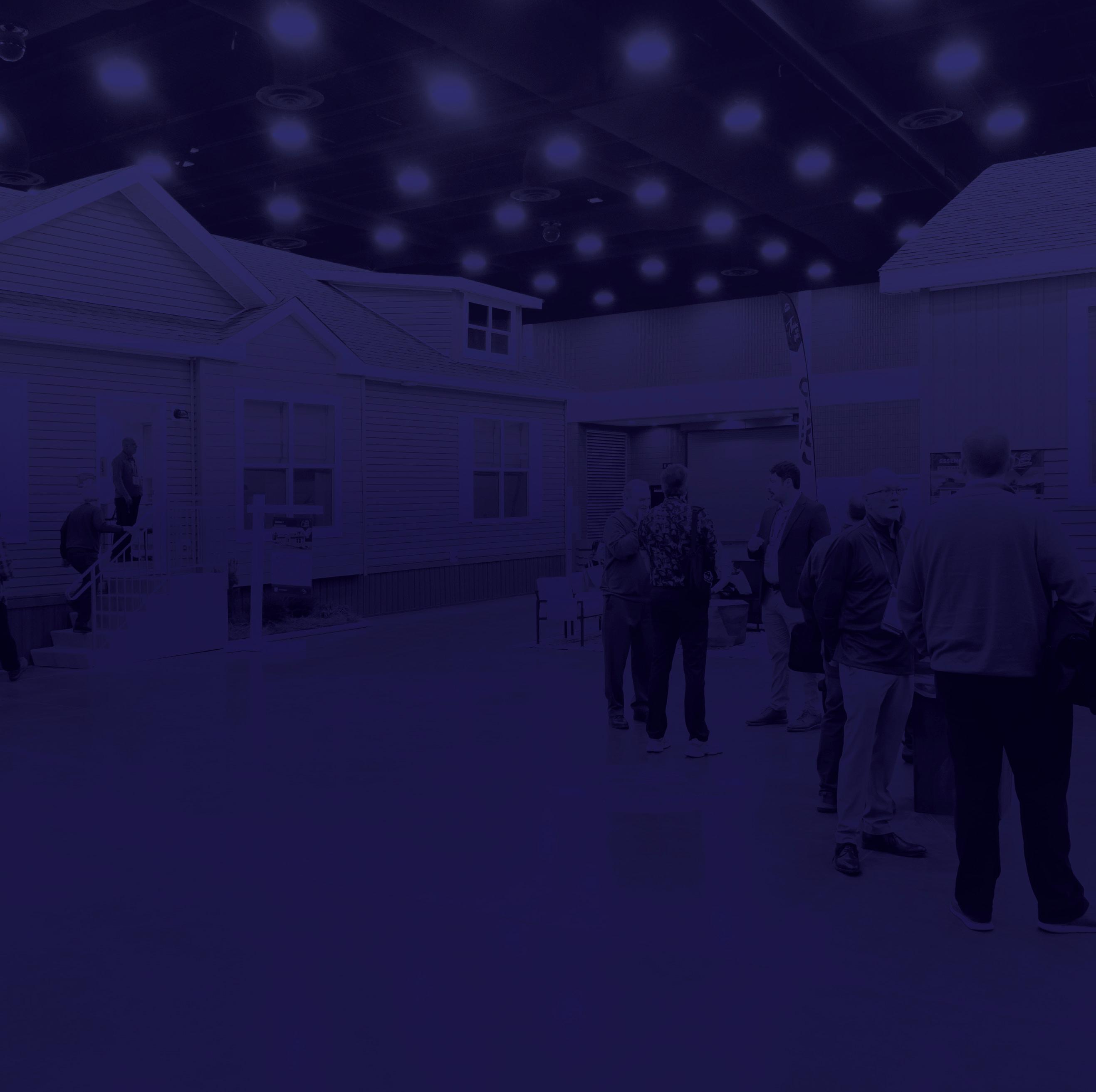
• Simplified Training: New team members can ask bots for help or data without needing to master the full ERP system right away. These make implementation and onboarding both much easier on the user, and much quicker for the company.
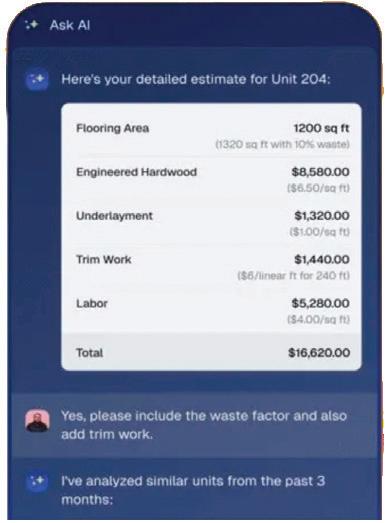
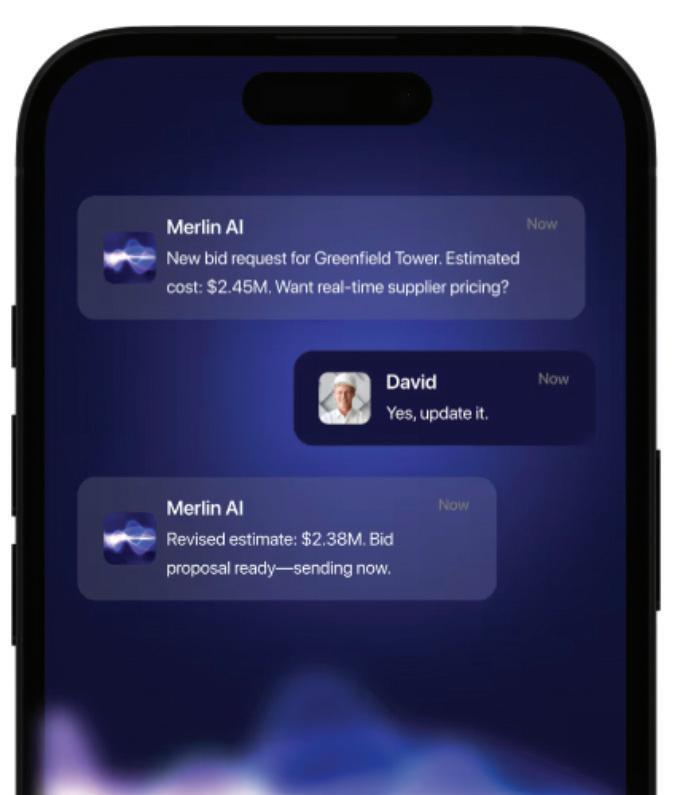
For instance, if a site manager types “Update Project Greenhill’s status to ‘Electrical Started,’” the bot immediately logs the update, notifies relevant parties, and triggers the scheduling of the next phase.
AI agents act like an intelligent assistant with real insight into your business:
• Predict Delays Before They Happen: By analyzing weather, labor availability, and supplier delivery timelines, agents can warn you days in advance that a project might miss its completion target.
• Optimize Material Orders: Agents can analyze usage trends, lead times, and current inventory to auto-generate purchase orders, preventing costly delays due to material shortages.
• Prevent Cost Overruns: Agents can flag budget creep in real-time by correlating field reports, change orders, and supplier billing.
For example, an AI agent notices a pattern of delays every time HVAC installs are scheduled on multi-story builds. It alerts your operations manager and recommends a shift in the workflow to avoid stacking subcontractors inefficiently.
When shopping for an ERP system, consider asking the following:
Does the system offer both AI bots and agents?
You want short-term efficiency (bots) and long-term intelligence (agents).
Can bots be customized for your workflows?
For example, if you often ask for subcontractor performance metrics, your bot should learn to retrieve those instantly. Are agents configurable to your business rules?
AI agents should reflect your company’s way of building — not just a generic model.
Is there transparency in decision-making?
Builders need to trust the system — look for ERPs where agents explain why they made a recommendation.
What’s the roadmap?
Ensure the vendor is investing in future AI development so your ERP evolves with your business.
AI in an ERP isn’t just a buzzword anymore — it’s a strategic advantage for builders ready to scale smarter and work more efficiently. AI bots can help a team move faster, while AI agents help the team to build better by offering insights, automation, and predictive intelligence.
However, it is very important to note while some systems have most of these elements, no system has all of them wrapped up together. Builders may still need to add specific tools to whatever system they are using. Think of AI bots as a digital intern — and AI agents as a future project manager. The right ERP system should empower both.
As builders evaluate ERP platforms, it’s best to look beyond checkboxes and dig into how the system helps you build. Whether a custom builder or a regional production builder, a modular factory, a manufactured home builder, a community, or a dealer, all of these companies can benefit from an ERP system, even if they won’t use the whole system, or won’t all use it the same way. But embracing the right kind of AI can be the blueprint for growth. MHV
Erik Cofield is the vice president of strategy for MerlinAI. He has 30 years of experience helping companies in residential construction. A member of NAHB, Cofield specializes in AI, sales and marketing strategy, business management, and leveraging technology in the sales process. He has provided consulting services to builders, developers, remodelers, and construction companies of all sizes and types. He is the author of books available through Amazon and can be reached at erik@merlinai.co.
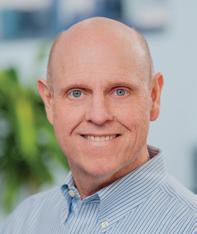
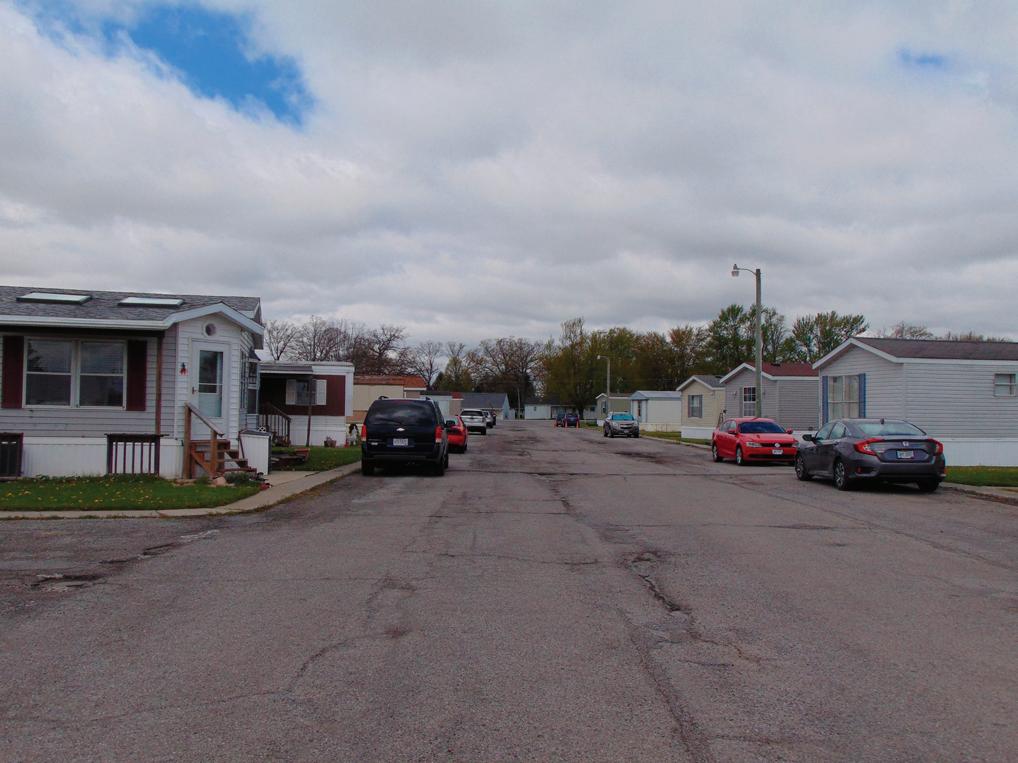
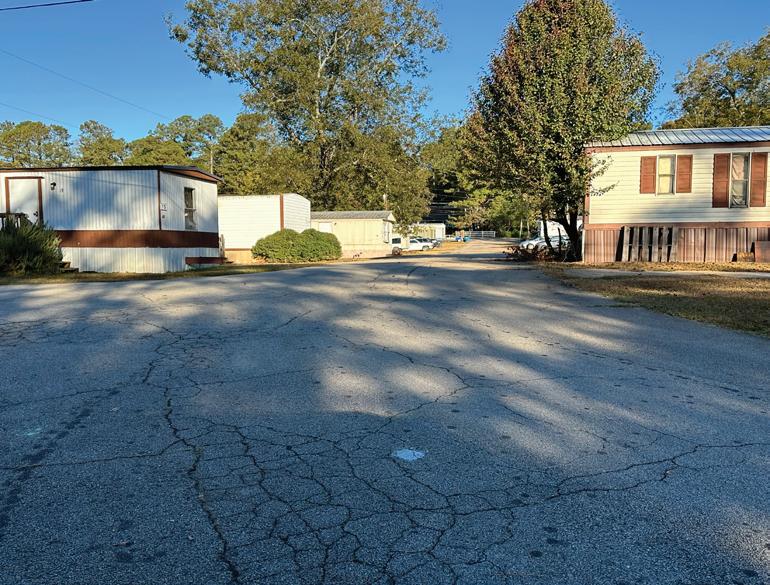
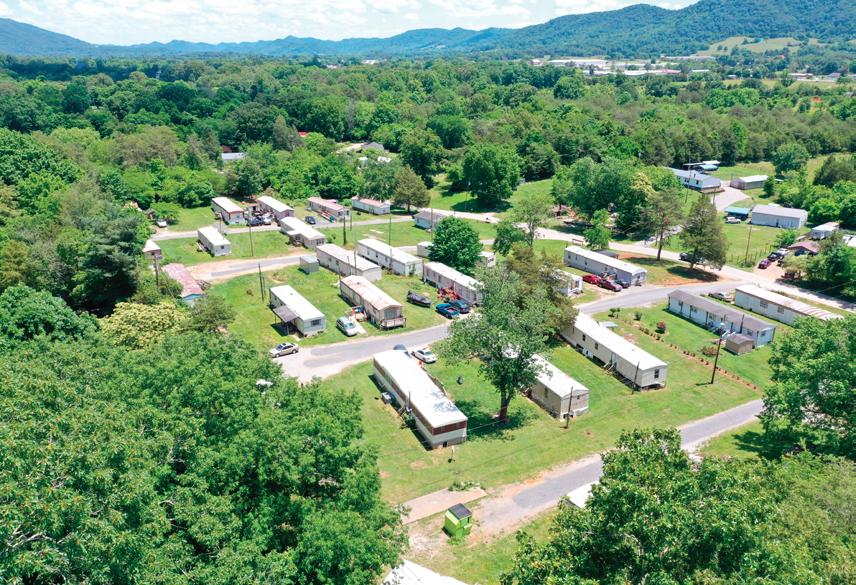
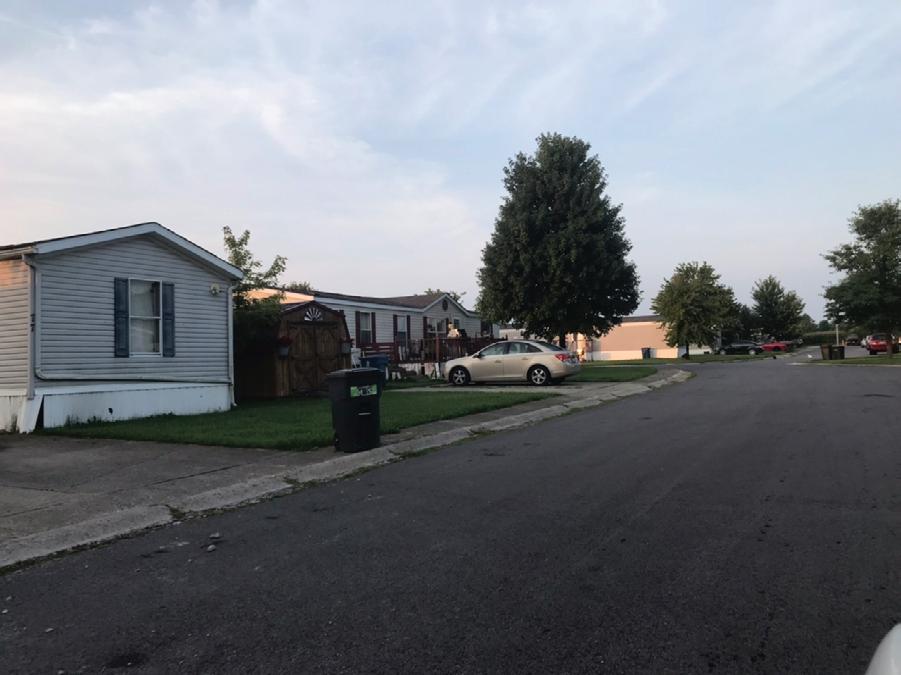
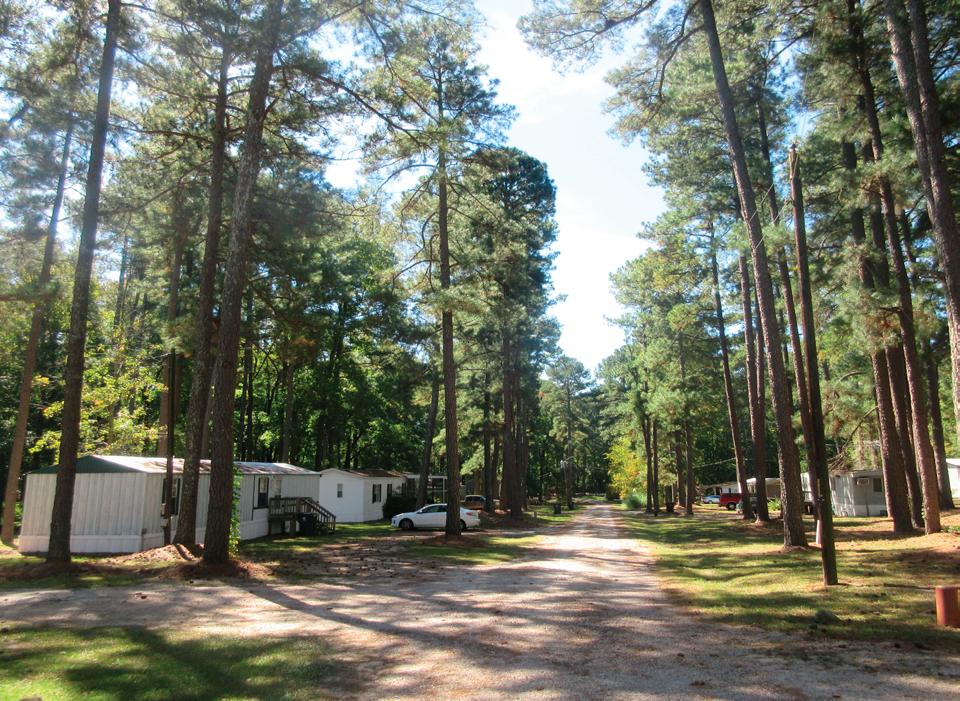
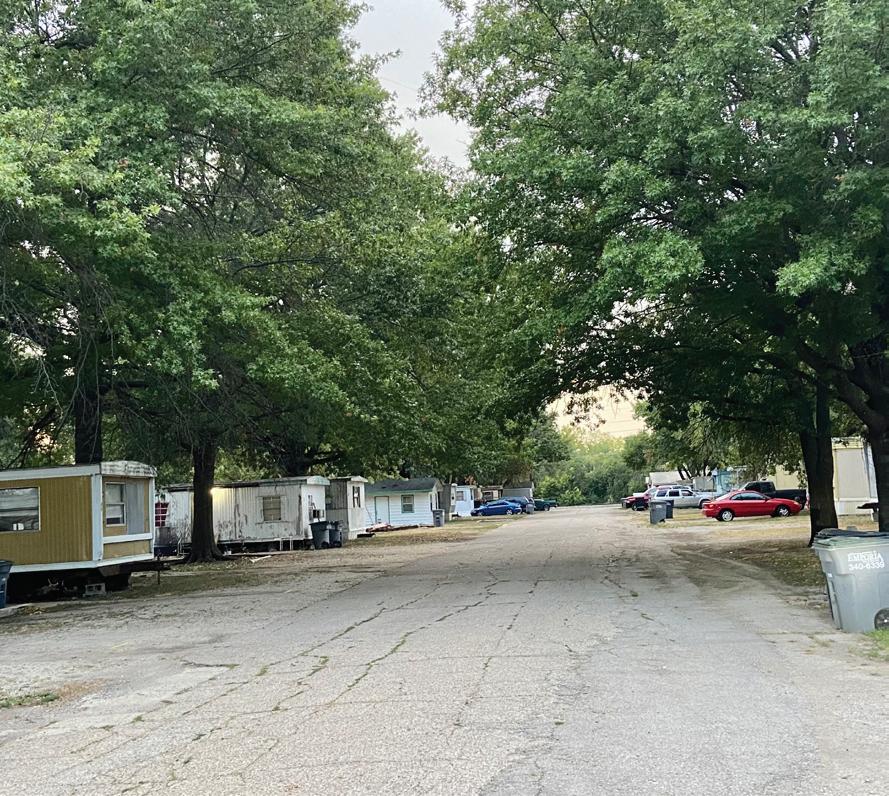

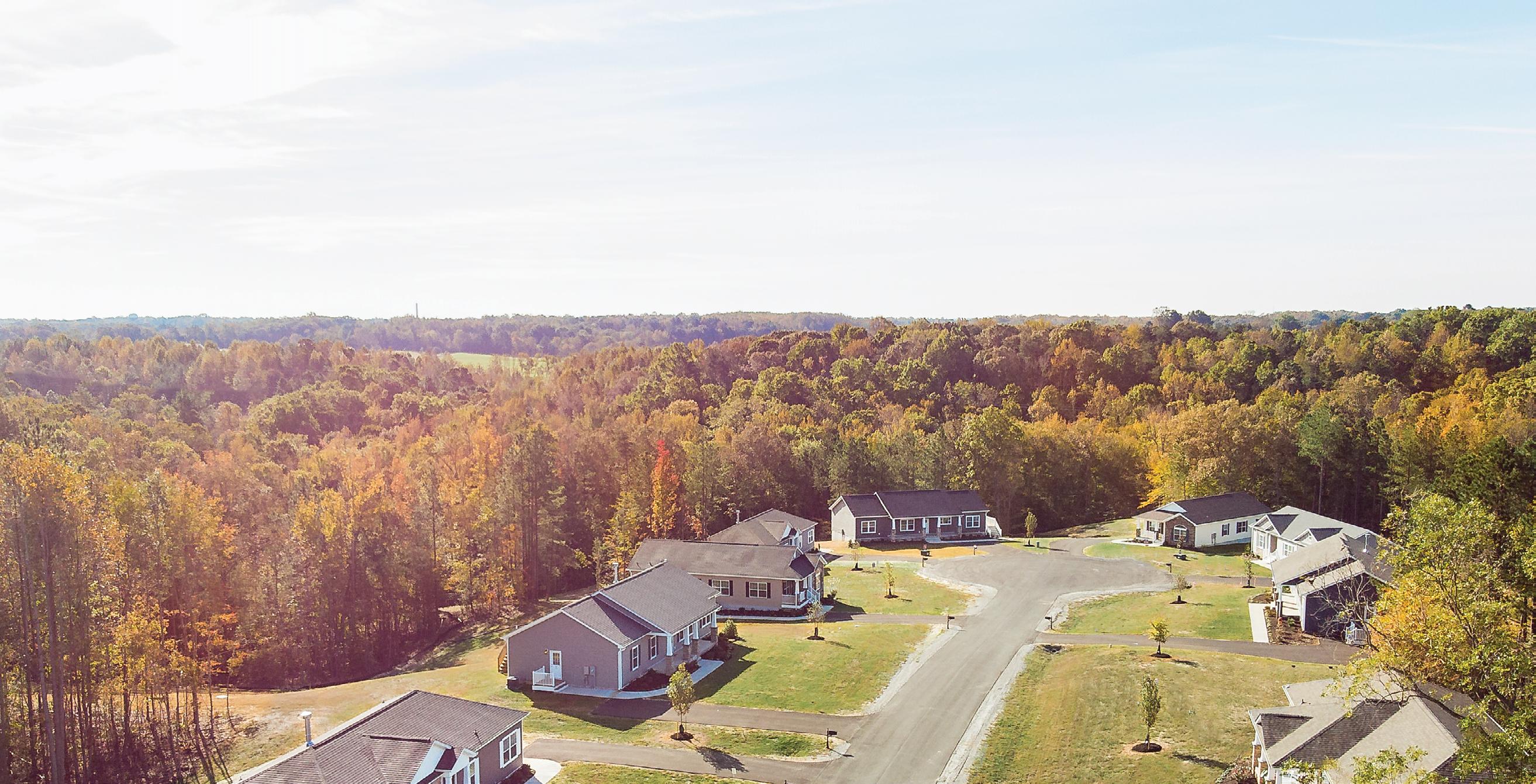


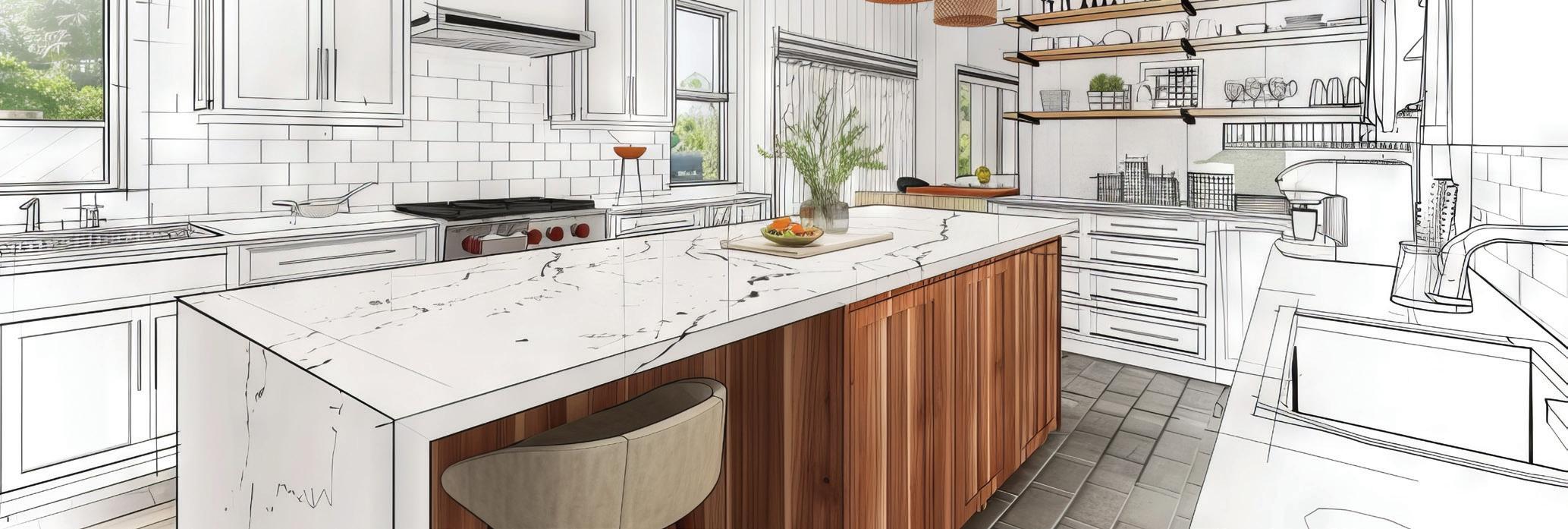

Trove is a new software company that streamlines buying and selling manufactured homes. Its platform facilitates the process for homebuyers, dealers, and factories — allowing customers to easily discover, design, and quote their next home online.
Trove was founded by brothers James and John Connolly, who previously ran Villa, a HUD retailer in California. In just four years, they sold more than 500 homes and gained deep, hands-on experience in the manufactured housing industry.
Trove offers a comprehensive digital experience that guides homebuyers through their manufactured home
purchase — from home selection to project management. Buyers can fully design and quote their home online using factory-specific floor plans, layouts, and décor options. The platform also provides instant site work quotes, property mapping, and other tools essential to get a project off the ground. What once required multiple in-person meetings and expensive design software can now be done online — faster and at lower cost, thanks to advances in modern technology and AI.
“A New Yorker looking for a home in South Carolina can now design their ideal home online,” said James Connolly.
“They can instantly visualize the ‘swirling smoke’ exterior body color with the horizontal lap siding along with the floor-plan-specific option pricing — all from their couch,” added John. “It’s a holistic and empowering journey for today’s homebuyer.”
At its core, Trove is built for retailers. It’s a comprehensive solution that helps manage websites, customer pipelines, inventory, and more — all in one place. The goal is simple: streamline operations, reduce costs, and ultimately pass those savings on to homebuyers.
“It’s a tough process to buy or sell a home — even for experienced professionals,” said John. “It doesn’t have to be.”
Trove is currently integrated with over 150 U.S. manufactured home factories and offers its services nationwide. The platform is available via a monthly or annual subscription. Retailers can either integrate Trove’s tools into their existing websites or replace them entirely, depending on their needs.
“We’ve had interest from retailers, community park operators, developers, and factories across the country,” John said. “We know the pain points — and we’re focused entirely on solving them.” MHV

By Sean Vichinsky
Champion Homes has again shown its commitment to sustainability with the launch of EcoWise™, an upgrade of high-performance enhancements that make a manufactured home so energy efficient, a renewable energy system could offset most or all the home’s annual energy use.
Showcasing Champion Homes’s most energy efficient designs to date, EcoWise™ homes meet or exceed the federal government’s most rigorous guidelines for high-performance homes as a part of the U.S. Department of Energy Zero Energy Ready Home program. EcoWise™ is available now in the Northeastern United States for homes built by Champion Homes’s Sangerfield, N.Y., manufacturing facility.
“We’re thrilled to launch EcoWise™ in the Northeast region as a demonstration of Champion Homes’s commitment to sustainability,” Champion Homes Regional Vice President for the Northeast David Reed said. “EcoWise™ homes are exceptionally high quality houses that offer buyers lower utility bills and an overall more comfortable living environment.”
According to the National Association of Home Builders’ 2021 “What Home Buyers Really Want” report, energy efficient features are one of the top “mostwanted” features in a home. The survey stated that 83 percent of buyers desire ENERGY STAR® Certified windows, 81percent of buyers desire ENERGY STAR® Certified appliances and 80 percent of buyers desire energy efficient lighting.
The offsite construction techniques used by Champion Homes are a faster way to build the energy efficient homes buyers are looking for. Champion Homes utilizes a skilled, centralized workforce in manufacturing facilities where homes are »


protected from the elements during construction. These efficiencies contribute to quicker project timelines, which can enable residents to move in faster and avoid expenses associated with construction delays.
EcoWise™ homes are durable, comfortable homes that offer better temperature control, improved air quality and more efficient water usage. These essential benefits may result in lower costs for buyers to maintain and live in their home.
As Champion Homes’s most comprehensive energy efficient offering, EcoWise™ homes come with an abundance of energy efficient features, including:
• ENERGY STAR® Rated Appliances & Fixtures
• ENERGY STAR® Certified Whirlpool® appliances
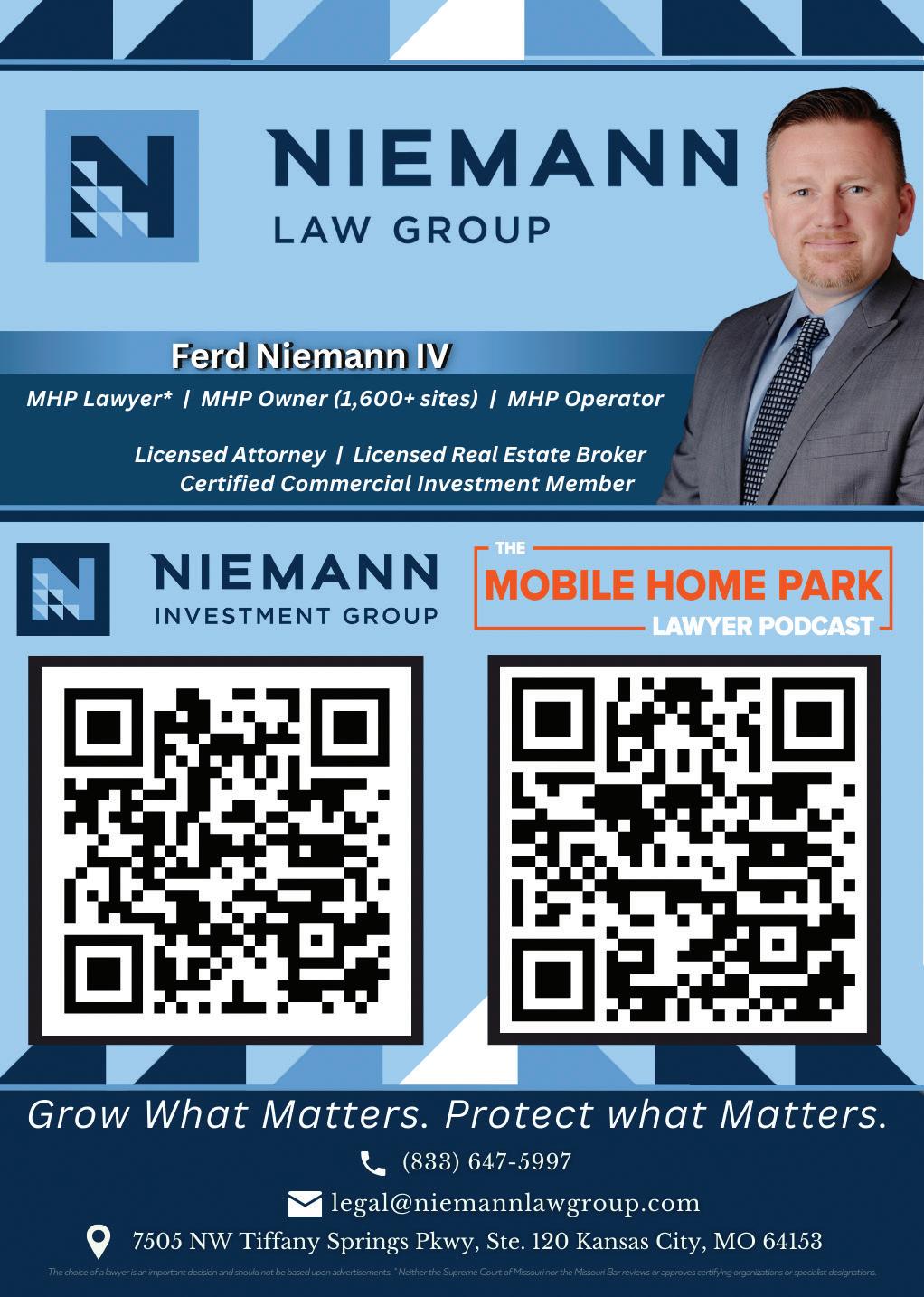
• A programmable thermostat
• A high-efficiency Rheem® Hybrid Heat Pump water heater and Airquest® furnace (a Carrier® Brand)
• Tight Energy Envelope
• Energy efficient windows
• High-performance insulation in the walls, floor and roof
• Energy Efficient Building Components
• Low-emission building materials, including paints and carpet
• Energy efficient LED lighting
• Solar Power Ready. Designed completely ready for solar panels to be installed with space for photovoltaic equipment including reserved space for inverter, breaker slots and routing for cabling
Buyers can purchase Champion Homes’s EcoWise™ homes from independent manufactured home retailers in New York, Pennsylvania, New Jersey, Rhode Island, Connecticut, Massachusetts, Maine, Vermont and New Hampshire.
“Energy efficiency ranks high on buyers’ list of priorities when they’re shopping for a home, and we’re excited to offer EcoWise™ homes to provide what they’re asking for,” Champion Homes Sangerfield, N.Y., Sales Manager James Davis said.
A DOE Zero Energy Ready Home is a high-performance home that is so energy efficient that a renewable energy system could offset most or all the home’s annual energy use. Each home is made up of components and building systems that are carefully designed, constructed and installed to allow the house to work together as one system, delivering superior performance, comfort, efficiency and durability. These homes meet rigorous efficiency and performance criteria and are verified by a qualified third-party as part of the certification process. MHV
Sean Vichinsky is an editor of MHInsider and a marketing copywriter for MHVillage.

Since 2004, manufactured housing professionals have placed their confidence in MHVillage to generate high-performing leads that consistently deliver the highest returns for their marketing budget.

By Patrick Revere
Over the last 15 years GoliathTech Corporation, a manufacturer of helical piles for the commercial and residential construction industry, has quietly introduced a foundation system for manufactured homes that is beginning to have a significant impact on the industry.
Unlike its counterpart, the concrete pier and cinder block, helical piles are engineered and installed with measurable torque to provide the compression, tension, and lateral load support needed for every size manufactured home.
It is an emerging technology in the industry and ensures homes are anchored securely to the ground.
Helical piles, also known as screw piles, have a long history dating back to the 19th century — first being used for the

footings of lighthouses in difficult soil conditions where traditional footings were not feasible — and they continue to expand into new areas of business, including manufactured housing.
Although somewhat disruptive to the industry, the intention, and practical use of a highly engineered solution like helical piles, is not to displace all other solutions but to provide a much-needed improvement to how manufactured homes are secured. There have been some improvements to anchorage and lateral support systems over the years, of course. The difference with GoliathTech is a complete, new foundation system, backed by measurable installation data.
“GoliathTech is a highly innovative company always in search of markets
where helical piles can provide a solution, and the manufactured home industry was a perfect fit,” GoliathTech Vice President of OEM Relations Michael Coyle said. “We work well in frost climates where depths of 40 feet and deeper are common… Going south, we can provide an improved solution in areas that have expansive soil conditions where concrete runners are the norm.
“Basically, anytime a concrete footing or runner is required, the GoliathTech system competes well cost-wise and is superior in every other way,” Coyle said.
A typical system is installed to a depth of five to 10 feet with the use of a mini excavator or skid steer outfitted with a designated hydraulic motor, ensuring the pile is properly inserted into the ground.
“With our piles, there is no concrete involved,” Coyle said. “As we achieve acceptance in the marketplace we’re seeing that we compete well in areas of the country like the Midwest and Northeast where frost is present and in states like Texas, Nevada, and Colorado where expansive soils are a problem.”
The process follows a specified foundation plan where torque and depth are determined for each footing. The operator monitors these factors in unison during installation, Coyle said. Once the installer hits the numbers, the team moves onto the next footing. The speed of installation also is a benefit. A foundation and a home are installed in a single day.
“There is no waiting for concrete to cure,” Coyle said. “And it can be installed in any weather condition.”
Coyle said he believes GoliathTech is the first company to provide this type of industrial-strength anchorage with the engineered foundation system for homes.
“It will perform as well or better than a permanent foundation wall,” he said. “Once the specified depth and torque are reached, screw piles do not move. In many soil conditions, the same cannot be said for concrete footings. They are reliant on the solidity of the underlying soil and those foundation walls are relying on that soil.”
– Michael Coyle
Seven years ago, Clayton took notice and realized the system provided an improved foundation and improved the ease of installation.
GoliathTech is already working with some of the largest builders in the manufactured housing industry to identify areas where its technology can be most beneficial. Companies like Clayton, Cavco, and Champion have added the GoliathTech Foundation system to their DAPIA certifications and installation manuals. The company also has had meetings with the Department of Housing and Urban Development »
Manufactured Housing Educational Institute
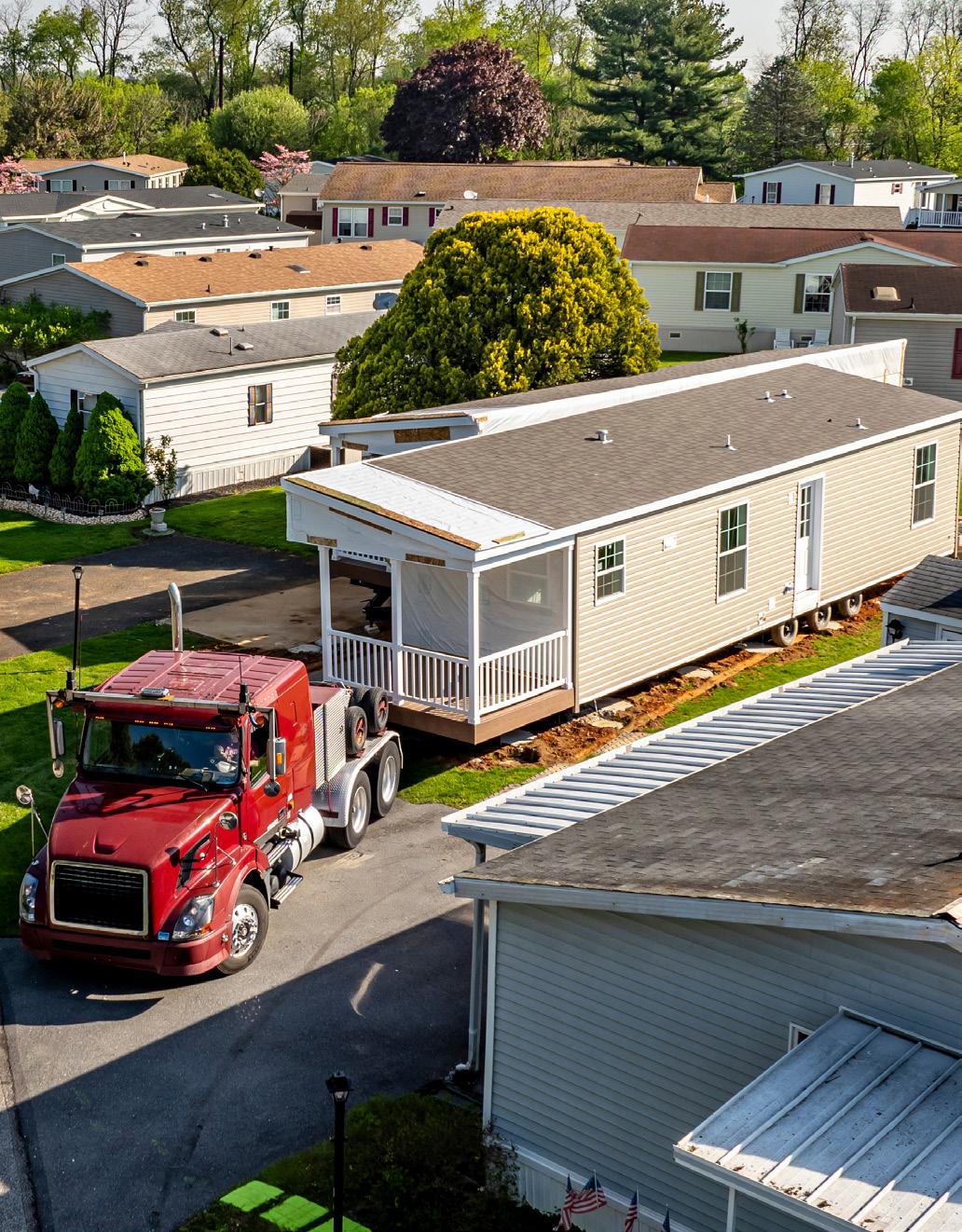
Launch your career as an installer
MHEl's online course is the first step toward earning your installer license. Courses are available in 37 states, with additional states coming soon!
Keep your skills fresh with continuing education
Completing your continuing education requirements is easy! MHEl's online courses allow you to keep your license up to date – all from the convenience of your computer. Learn More ManufacturedHousing.org/Installer mhei@mfghome.org

discussing how the system is improving the foundation of a manufactured home.
“While our customers realize that this system provides a massive improvement over existing systems, it continues to be implemented through CFR-3280 as an alternate foundation,” Coyle said.
Coyle said GoliathTech would like to see a helical pile foundation system approved within HUD’s Permanent Foundation Guide for Manufactured Housing.
“The hold down capability is why the system is approved for use in all wind zones and flood zones under FEMA’s P-85 definition,” Coyle said. “We’re going to do it in pieces. The first step is anchorage. The second step would be for them to approve the entire system.
“It will perform as well or better than a permanent foundation wall,” he said. “Once the specified depth and torque are reached, screw piles do not move. In many soil conditions, the same cannot be said for concrete footings. They are reliant on the solidity of the underlying soil and those foundation walls are relying on that soil.”
One of the key benefits of the helical pile system is in its versatility. For use in flood plains, for example, the system is designed to work at any height above grade. One of GoliathTech’s clients, a community owner in Montana with several lots in flood plains, were faced with very costly soil removal, engineered fill, and re-compaction costs. Using helical piles, those excavation costs were no longer required.
Helical piles are driven deep into the ground getting through the layers of problematic soil.
Once the piles reach the good soil and the specified depth and torque are reached, the foundation is secure.
Illinois based HUD inspector Dan Mailin is a big proponent for the use of the system in flood plains because it removes a lot of the complexities synonymous with setting homes in these types of environments.
Coyle said installers and community owners appreciate how solid the system is and the speed at which it can be installed. At the highest level of efficiency three crews can install 100 homes in a month.
“This is huge for community owners where time to occupancy and revenue is greatly reduced,” he said. “They are getting used to the idea of change once they see the benefits.” MHV








▪
▪




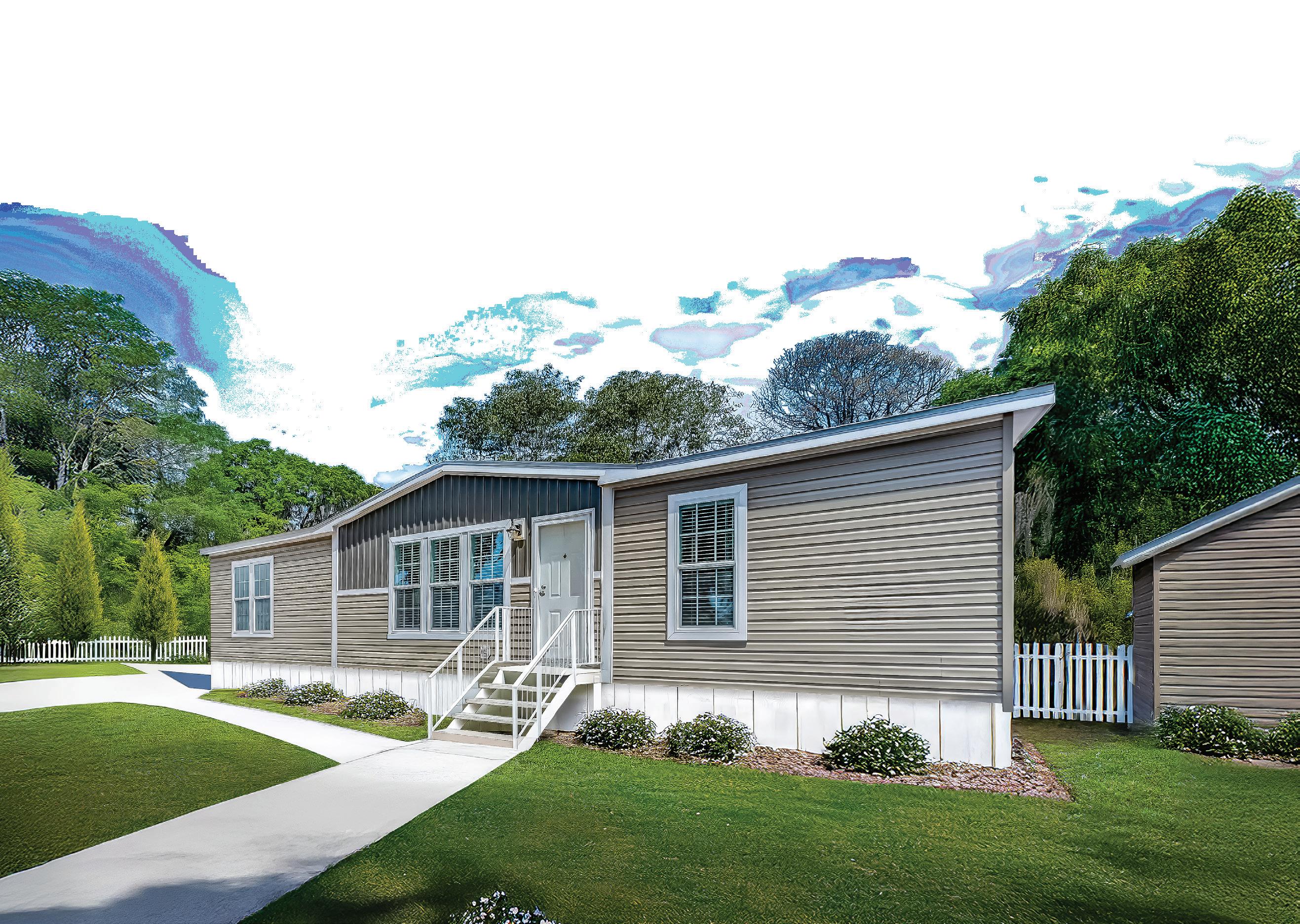







































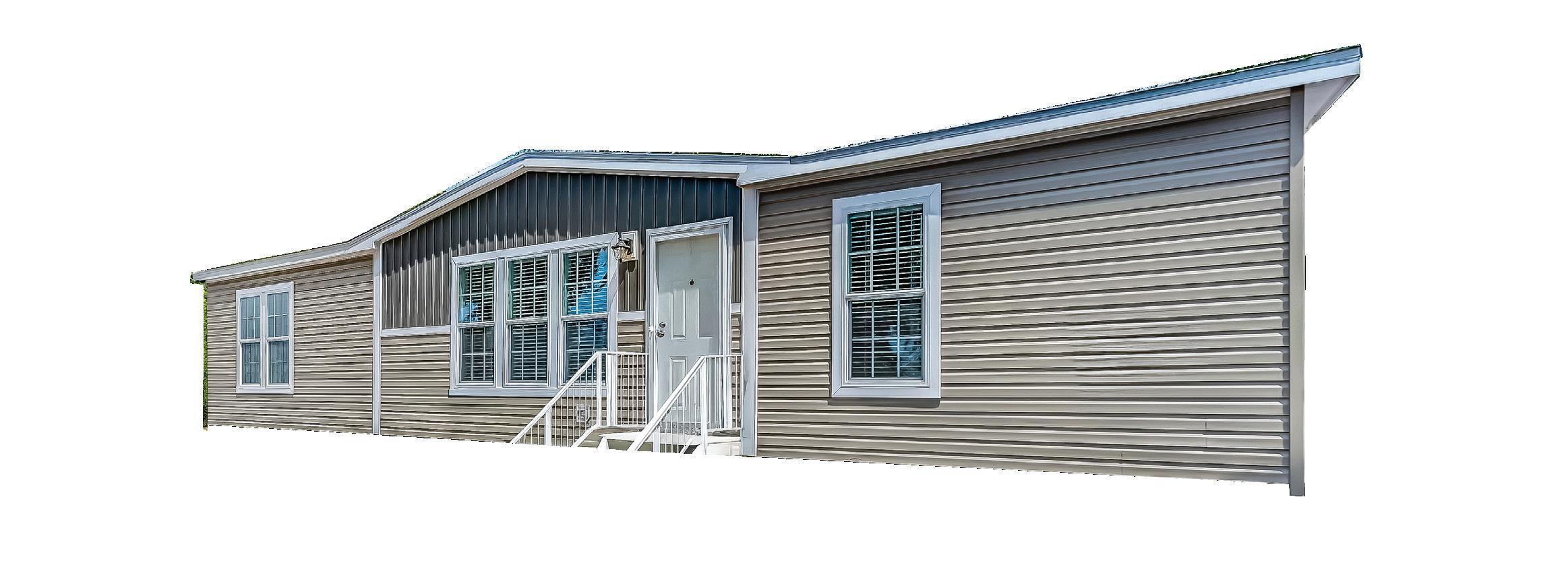
From one-time close loans to specialized financing for unique property types— including manufactured, modular, and alternative housing—we support your vision at every stage.
A proprietary mortgage platform, Octane®, streamlines the mortgage process with automation to maximize partnership efficiency.
Backed by strong executive relationships with Fannie Mae and Freddie Mac, our leadership drives market evolution, positioning our partners at the forefront of opportunity.
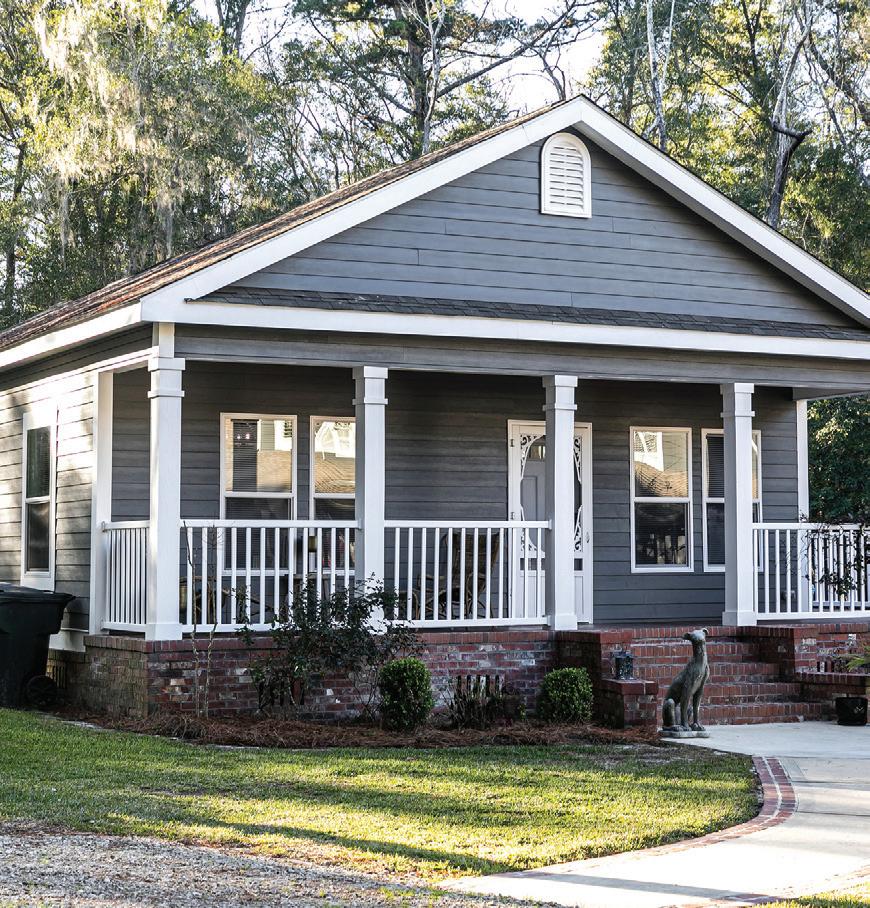

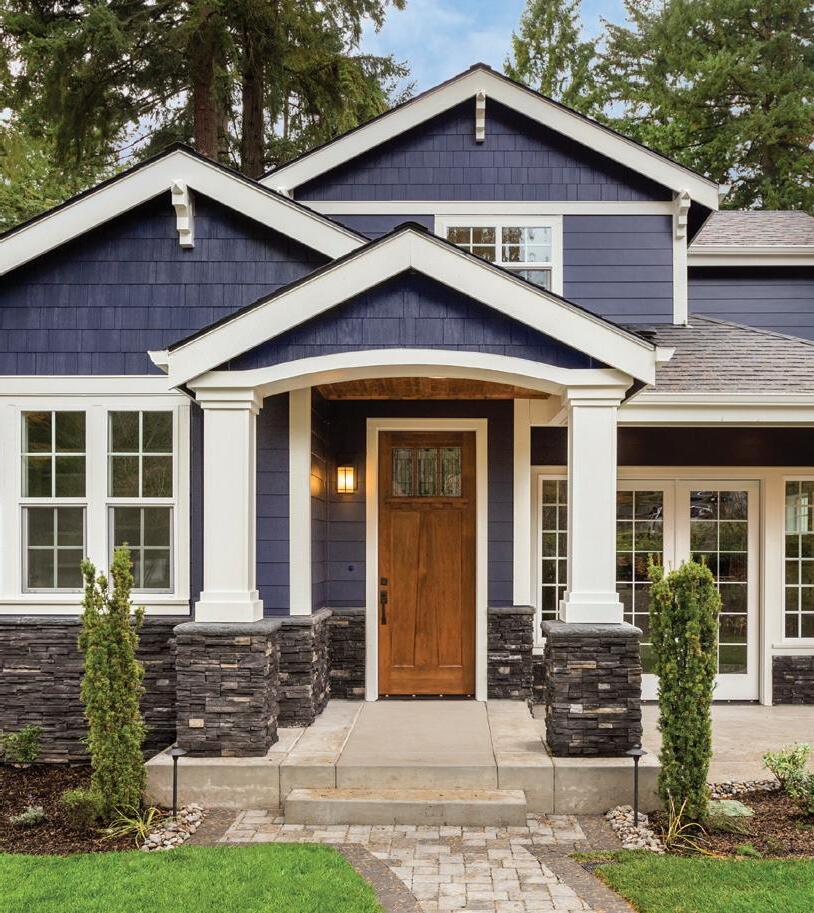


Homeownership isn’t one-size-fits-all. That’s why we offer a diverse range of lending options designed to meet unique financial needs, making homeownership more attainable.
From one-time close construction loans utilizing FHA, VA, or Fannie Mae programs to flexible credit terms and low down payment options, we provide borrowers with financing solutions that fit their path to homeownership.
Powered by Octane ®, a proprietary mortgage platform, we automate 90% of the process— streamlining approvals, reducing paperwork, and helping borrowers close faster with less hassle.
With deep experience in off-site construction financing, we provide lending solutions for a wide range of property types, including manufactured and modular homes, barndominiums, tiny homes, and community developments featuring these home types.
Contact us to learn more about how Cardinal Financial can elevate your construction lending experience.

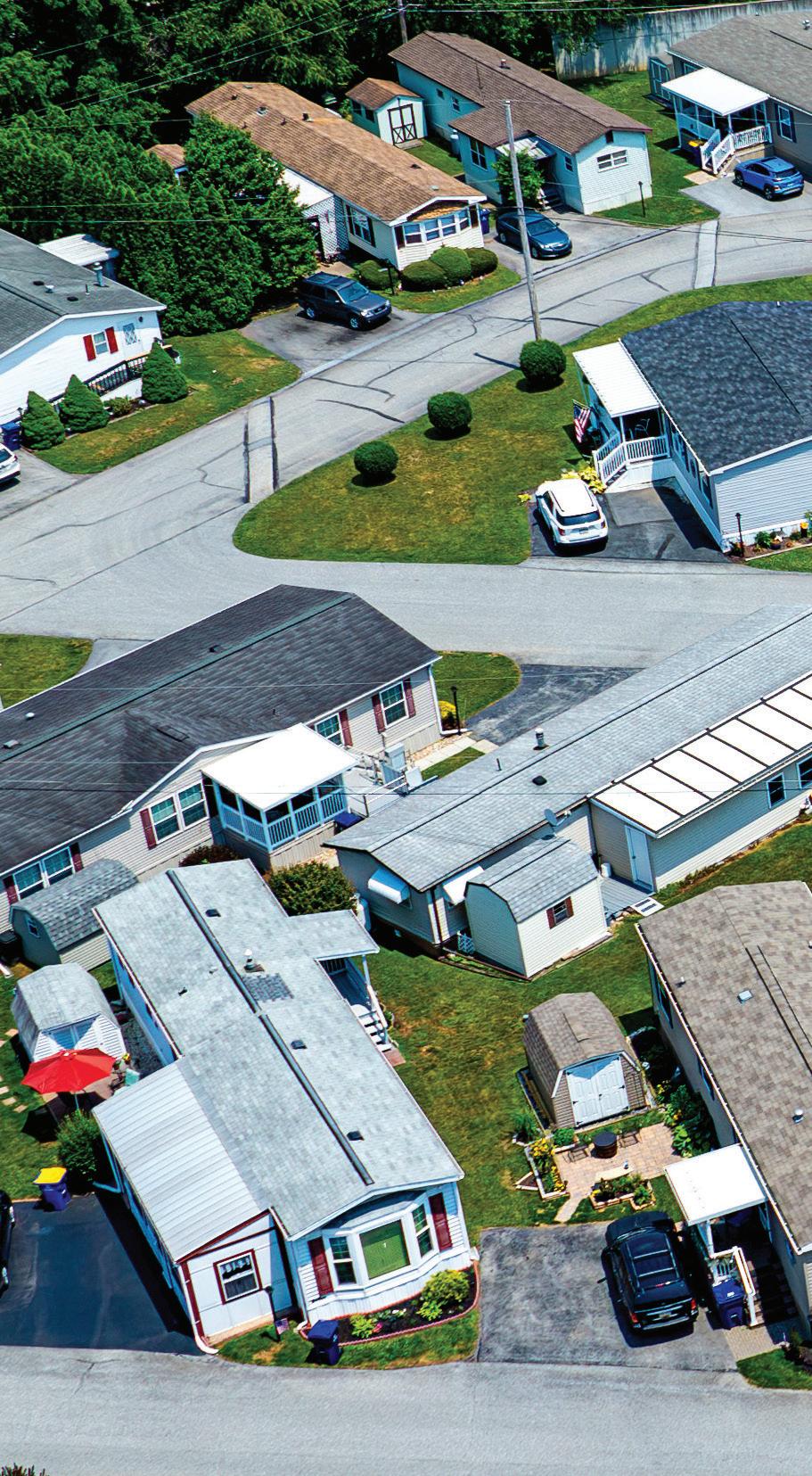
By John P. Kapitan
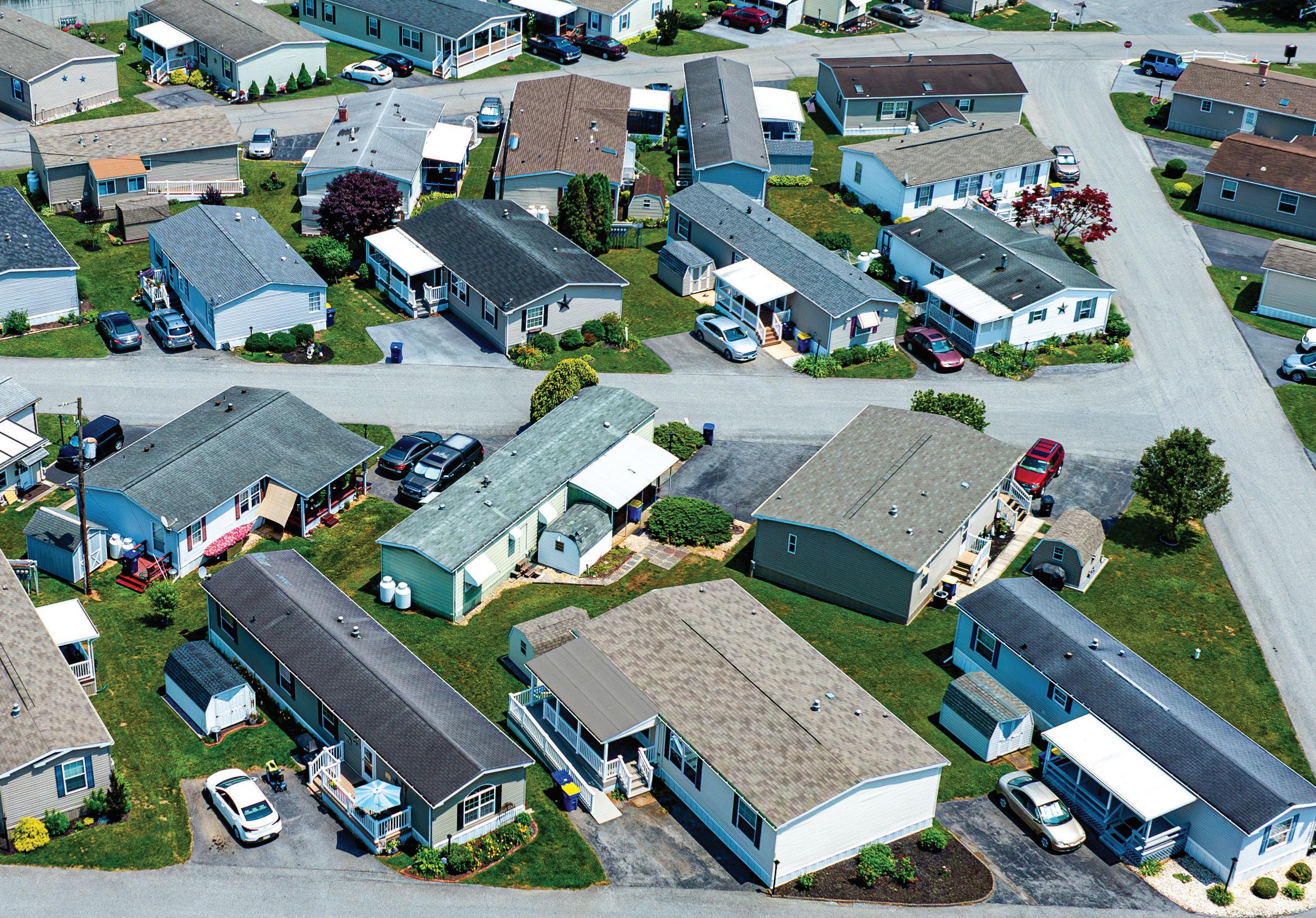
The “next best thing” in any industry is never without its drawbacks. The printing press brought extremist ideologies contributing to social unrest and conflict. Similarly, the automobile produces air pollution and nuclear power produces radioactive waste. Algorithmic processes and AI are no different. Algorithms, by their very nature, require a far greater level of specificity than is usually possible with human decision making. This, in turn, may produce inaccurate or overly broad criteria that unintentionally or inadvertently exclude people from housing opportunities in discriminatory ways.
The Fair Housing Act prohibits discrimination in the sale, rental, and financing of dwellings and in other housing-related services because of race, color, religion, sex, national origin, familial status, or disability. Additionally, the FHA prohibits intentional discriminatory practices as well as those with unjustified discriminatory effect. When dealing with AI or any other technology, it is important to remember that the act applies to housing decisions regardless of what technology is used.
To assist housing providers and their vendors, the U.S. Department of Housing and Urban Development has provided »
guidance to the advertising of housing, credit, and other real estate related transactions through digital platforms and also to the screening of applicants for rental housing. This guidance was re-
Tenant screening companies claim they use advanced technologies such as machine learning and other forms of AI, but some of the information they use may have little bearing on whether someone will comply with their lease and can cause less transparency as to the precise reasons for a denial.
President Trump rescinded the order, it is still helpful when formulating policies and procedures and to better understand the potential pitfalls when using AI and other advanced technologies for housing related needs.
In advertising, audience targeting is a concern. Ad platforms provide selection tools to customize the intended audience. However, these functions may violate the Fair Housing Act “by segmenting and selecting audiences for housing-related ads based on protected characteristics or proxies, whether self-disclosed or inferred.” For example, these limitations may exclude families with children or people with service animals. This can be done for benign reasons such as a belief that a particular property is inappropriate for children because of potentially hazardous features like stairs or pools, but it may result in familial discrimination.
The use of categorization tools to target housing-related ads may also result in steering, price discrimination, or other discriminatory outcomes. This is especially an issue when used to show different advertising content to different groups based upon protected characteristics.
HUD also is concerned with ad platforms that offer “features that deliver ads only to a specified ‘custom’ audience or to an audience estimated to be similar to a custom audience in interests, behaviors, or likelihood to interact with an ad.”
For example, it is much cheaper to advertise to men than women. Advertisers who want to pay less may end up only advertising to men, thereby unknowingly discriminating based upon sex. HUD suggests disabling these functions altogether for housing-related ads. HUD also recommends the following for advertisers and ad platforms:
• Utilize ad platforms that are taking steps to manage the risk of discriminatory delivery of housing-related ads. Before using an ad platform, advertisers should ensure they obtain necessary information and disclosures regarding how the ad platform mitigates these risks, such as identifying housing-related advertisements. Additionally, advertisers should consider the source, composition, and data sets for custom and mirror audience tools, and monitor outcomes of advertising campaigns to identify and mitigate discriminatory outcomes.
quired by former President Joe Biden’s Executive Order on Safe, Secure, and Trustworthy Development and Use of Artificial Intelligence, and, although
The use of custom and mirror audience tools for housing-related ads may violate the act when limitations are based on protected characteristics and when mirroring functions seek to introduce, replicate, or enhance such limitations.
• Ad platforms should ensure housing-related ads are run in a separate process and specialized interface designed to avoid discrimination. They should also avoid providing targeting options that directly describe a protected class and have regular endto-end testing and identify and adopt less discriminatory alternatives for AI models and algorithmic systems. The algorithms should be similarly predictive and adjustments made to correct for disparities in predictiveness or direct the algorithm to develop additional information that enhances predictiveness for certain groups. Lastly, the ad delivery system should not result in differential charges on the basis of a protected characteristic.
Tenant screening based upon imprecise or overbroad criteria may unjustifiably exclude people from housing opportunities in discriminatory ways. Tenant screening companies claim they use advanced technologies such as machine learning and other forms of AI, but some of the information they use may have little bearing on whether someone will comply with their lease and can cause less transparency as to the precise reasons for a denial. Moreover, tenant screening companies tend to disclose few details about which specific functions their technologies perform and what safeguards are in place, which makes fair housing compliance much more difficult. Some systems might simply synthesize data, while others may also determine which criteria and standards are relevant. HUD makes clear that providers are responsible for ensuring their rental decisions comply with the FHA even when this task is outsourced.
To mitigate the threat of liability, HUD recommends housing providers adopt screening policies that are clear, detailed, and only use tenant screening services that will help implement these policies. Additionally, if a denial is recommended, there should be an independent determination of whether the information is, in fact, disqualifying. And the applicant should have the opportunity to dispute the accuracy or relevance of any negative information. To aid housing providers, HUD provides the following guidance:
• Choose relevant screening criteria.
• Use only accurate records.
• Follow the applicable screening policy. Records outside the scope of a screening policy should not be considered. Housing providers who »


use automated screenings should consider not asking applicants any questions about their criminal, credit, or housing history because such questions can confuse or discourage applicants while not giving the housing provider any information beyond what they will have already learned from the automated screening.
• Be transparent with applicants.
• Allow applicants to challenge negative information.
• Design and test complex models for fair housing compliance.
• Particular attention should be made when evaluating credit history, eviction history, and criminal records because overly broad screening of these areas tend to cause disparities that are likely to have discriminatory
effect based on race, national origin, sex, or another protected class.
Housing providers undoubtedly will benefit from advanced technologies such as AI. AI will reduce workload, gather more information, and should come at a cheaper price. AI and other technologies have their pitfalls, though, when it comes to the Fair Housing Act. While not every conceivable scenario is covered, following HUD’s best practices for advertising, credit, and the screening of applicants will reduce the chance of discriminatory conduct and should be incorporated within policies and procedures to mitigate potential liability. MHV
John Kapitan is a real estate and property management lawyer at Swistak Levine. He concentrates his practice in commercial
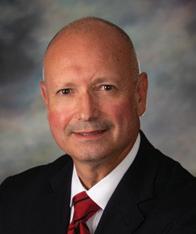
and real estate disputes and litigation, including the defense of title insurance claims, landlord-tenant, bankruptcy, and the defense of fair housing and discrimination claims. Prior to joining the firm, Kapitan was a staff attorney for a Chapter 13 Trustee and a partner at one of Michigan’s largest firms specializing in all facets of real estate finance legal work, including default servicing, bankruptcy, eviction, and litigation. He has represented mortgage servicers, banks, credit unions, investor groups, commercial and multi-family property owners, and individual entrepreneurs. Kapitan can be reached at jkapitan@swistaklevine.com, (248) 851-8000.
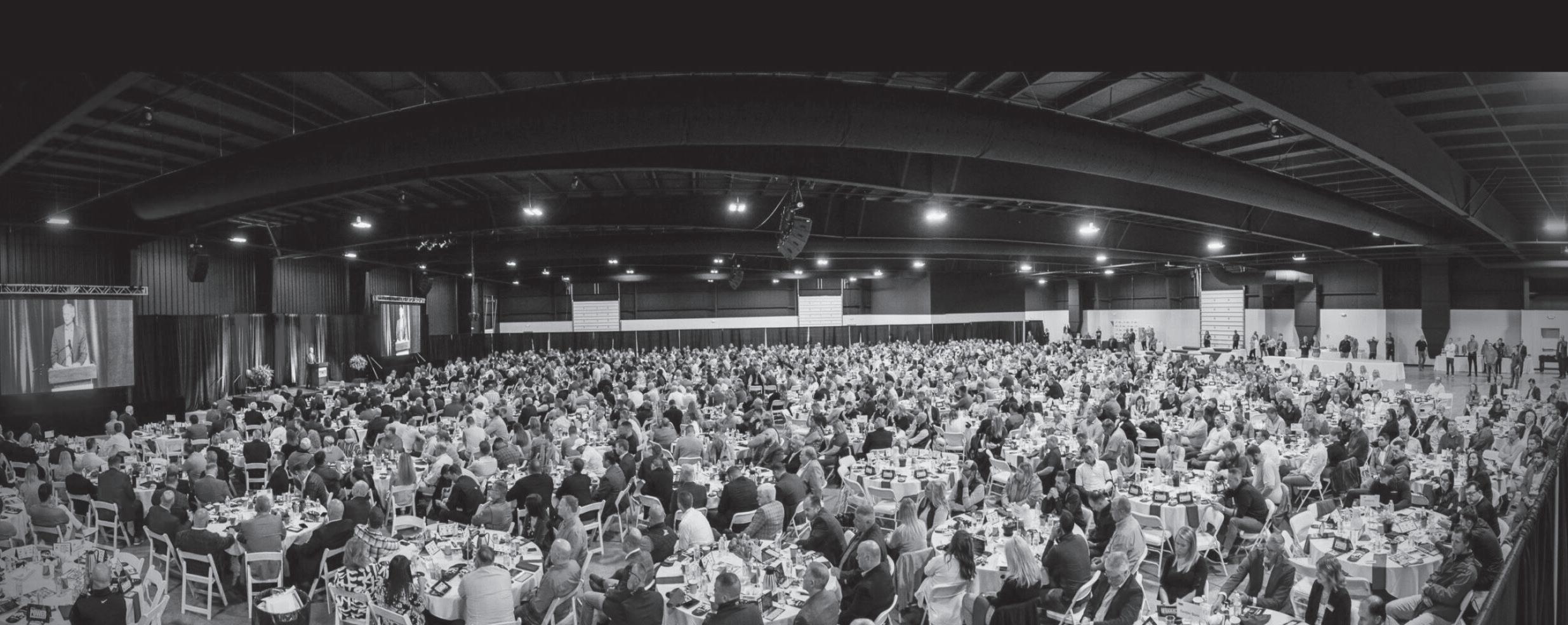


With detailed rent, occupancy and community attributes for nearly 200 markets nationwide, Datacomp has the information the manufactured housing industry relies on to locate and evaluate opportunities. Get the insights you need in today’s competitive market and continue to grow your portfolio with confidence.
Peake and Hart spent much of 2023 working on the big idea. They booked meetings with TransUnion. They reached out to all of the app-based payment services. They talked with residents, friends, and colleagues in the housing sector and in the tech space.
“It’s a lot of conversation and partnership,” Hart said. “That’s probably why no one else has done this.”
–Emily Hart
By Dawn Highhouse
This shouldn’t occupi much time.
Pardon… the emerging tech company with local roots may seem like a cute little cartoon character facing a big problem to solve — more on that later — but Occupi comes from an informed place in the manufactured housing industry and has applied the latest in tech advances to how homes get filled and monthly payments get made.
Company co-founder Taylor Peake was a community owner long before she started Occupi. She owns parks in Walker County, Alabama, in the area where she grew up, including the community she lived near as a child. She bought that first one from her parents about 10 years ago.
“It’s really difficult to strike a balance between what meets the residents’ needs and what is efficient for the management team,” Peake said.
Some of the challenges are obvious on the surface, but difficult in practice, especially around rent payments.
“In the communities we serve, we have received a lot of local feedback,” Peake said. “I actually set up myself as a resident in my community and went through the process of submitting an application and walk-in cash payment to experience the process from both sides.”
In many cases you have to find a local brick and mortar store, like Walgreens or other national chain, that has arrangements with payment services, allowing for residents to send money. “In some cases you have to wait in a pharmacy line,” Peake said.

Digital payment sources, particularly app-driven payments, are on the rise. Companies like Block, Inc., which owns Cash App, are making major strides. Today, 60 percent of U.S. mobile phone users take advantage of payment apps, transferring better than $7,000 per year, on average. “The fees are lower, the service is better, and it is convenient,” Peake said.
Peake purchased her second and third communities during the COVID pandemic, compounding the difficulty of communicating with residents, meeting their needs, and completing transactions.
Most small to midsize operators in multi-family or manufactured housing community operations faced challenges never seen, never thought of, in the spring of 2020.
“USPS disruptions during Covid made paying and receiving rent via money order even more of a hassle than usual. During the pandemic, the postal service was unreliable and created a major hurdle,” Peake said. “Money orders, cashier’s checks, they were just vanishing.”
Occupi’s software facilitates an easy screening process for applicants and enables multiple payment options in a central hub for renters, including Cash App, Chime, SoFi, Venmo, and PayPal, alongside traditional ACH and card payments.
Many tenants and residents are “underbanked or unbanked”, or simply prefer alternate means to get paid, keep revenue, and pay bills. Many of the Occupi customers have more than one employer, and little free time to run errands, go to the bank, or manage a character code while waiting to complete an in-person transaction. For walk-in or slip payments, the property managers are creating a character code to associate the payment with the resident’s account. Instead, Occupi is identifying the resident’s account inside of the community’s property management system and (with their permission) associating the resident with their cash wallet or favorite alternative payment method. Using Cash App as an example, the resident can utilize Cash App’s cash deposit locations to quickly deposit cash or employer checks without the same cumbersome slip or character code process. »
“We see many residents paying rent after hours, when traditional financial solutions or walk-in payment locations are closed,” Occupi co-founder Emily Hart said.
Max Rykov, Director of Growth for Occupi, comes from the nonprofit housing sector in Alabama and Tennessee. He is new to the company, and new to the industry, but accustomed to the difficulty of a smooth application and monthly payment process.
“It’s such a big issue,” Rykov said. “I assumed that this approach would have already existed. The future of payment will be via app-based solutions.”
Peake and Hart spent much of 2023 working on the big idea. They booked meetings with TransUnion. They reached out to all of the app-based payment services. They talked with residents, friends, and colleagues in the housing sector and in the tech space.
“It’s a lot of conversation and partnership,” Hart said. “That’s probably why no one else has done this.
“We launched the service in 2024 on Taylor’s properties,” she said. “We took a lot of feedback, and, again, looked at what worked and what didn’t… We felt really good about our product.”
Occupi’s fast application process incorporates the use of tax IDs rather than solely Social Security numbers. This innovation
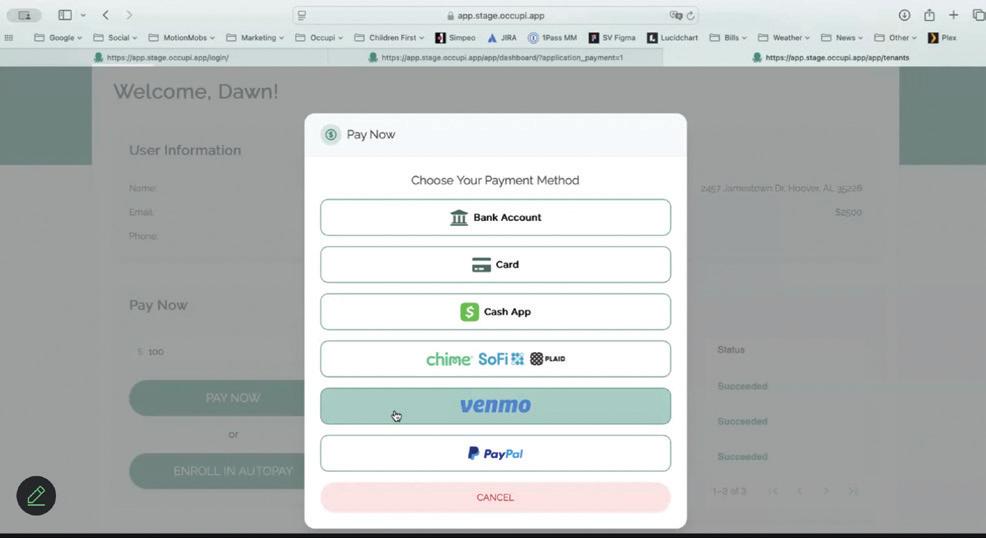
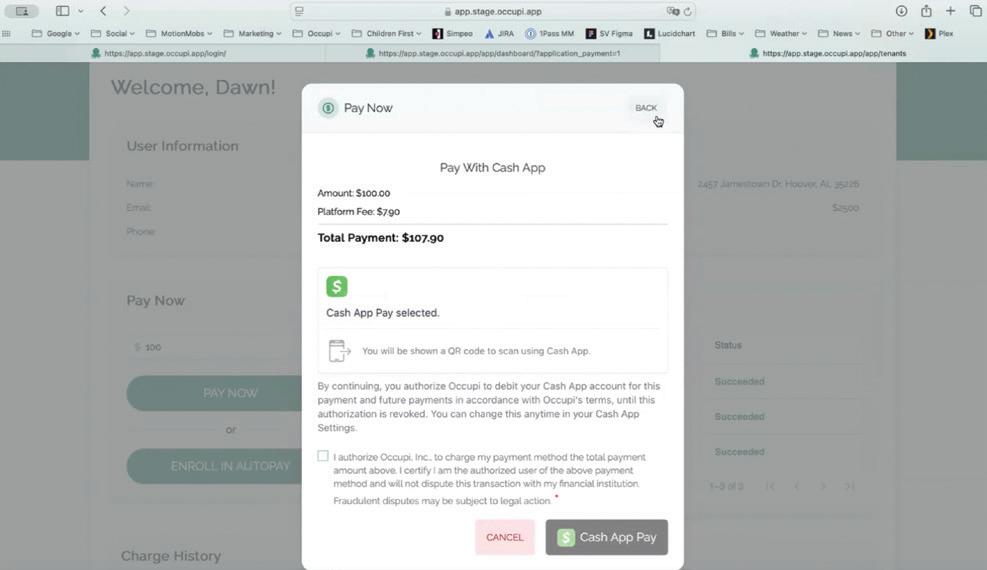
opens the application process to legal residents who are not yet citizens. When they made the app available to the wider market, the Occupi team signed up 1,000 doors in two weeks. To date, Occupi has facilitated more than $385,000 in transaction volume.
Hart said the application is largely invisible to property owners because it operates in conjunction with owners’ existing software, but also can be used as a standalone product.
“That’s something that fits well for smaller operators using only QuickBooks or Xero,” Hart said.
Hart has a marketing background and in recent years has been primarily in product development. When it came to naming the company, she wanted an active verb, she said.
“I found myself saying a lot ‘Is this unit vacant or occupied?’ I liked that. ‘Occupied.’ Occupy as a company name was already taken, but Occupi with an ‘i’ was there. And I felt like it worked.”
At bedtime several days later, she was struck by her son’s favorite companion, a plush beanie octopus that he called “Octi”.
“We should do an octopus!” She recalls exclaiming. Not so good for bedtime, but great for marketing.
“We went with an ocean color palette and Octi, the Occupi octopi, and it stuck,” she said.
With roots in Alabama, it makes sense Occupi would make its debut at the Biloxi Manufactured Housing Show and Expo.
The manufactured housing industry is a complex business. Products designed for other industries, or for other sectors of housing, often feel clunky when applied to the space. Occupi is one of the very few novel fintech solutions designed for manufactured housing. It takes into account the varying models, from “on land” to scattered site, to community, and full-rentals versus land lease, and the varying utility options and fees associated.
There’s no charge to property owners to implement Occupi, and a nominal flat fee is added to each payment, which can either be covered by the property owner or passed to the tenant. MHV
Dawn Highhouse has been in the manufactured housing industry for 25 years and is the vice president of customer experience at MHVillage.com. In her role, Dawn manages and implements strategic customer service, product development, and marketing initiatives.
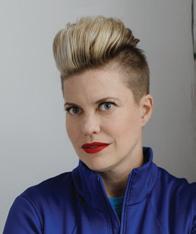
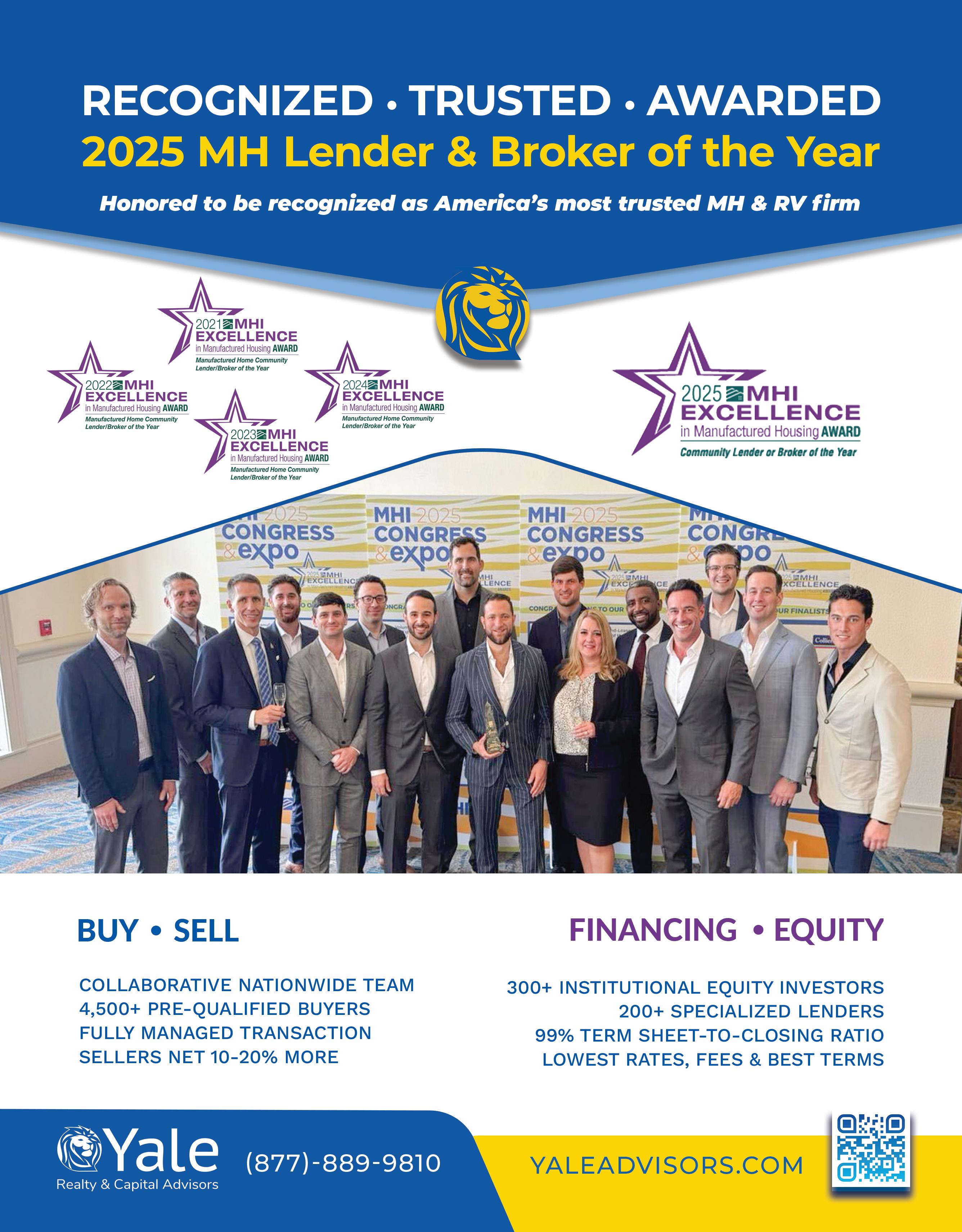
For 25 years, we’ve remained the only property management software partnering exclusively with manufactured housing.

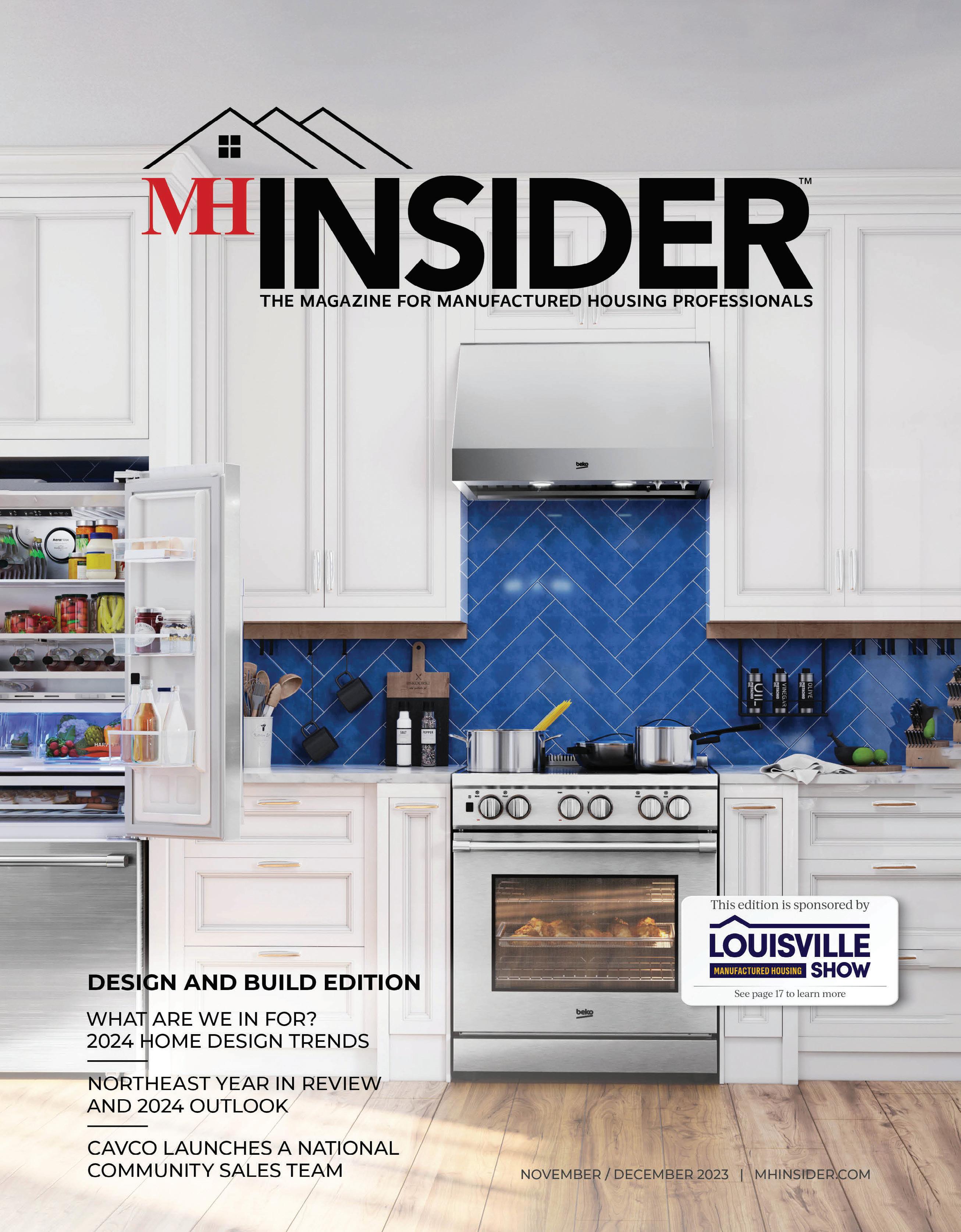

It was a fateful trip to visit the parents at a South Dakota RV park that effectively launched a new business for Rose and Joe Duemig.
“Well, we arrived to find out we’d just missed the kids parade, so we were already getting that ‘Really, Dad?’ look,” Joe Duemig said. “And then we could have used an alert on some bad weather coming in, and eventually fell victim to the dreaded ‘seasonal hours’. Overall, it was a great visit but we felt there could be a solution for a few of these misses.”
Joe has a background in software development, and his wife and business partner Rose held positions in hospitality, including at Ritz Carlton properties.
The pair had a 16-hour ride home to hash out solutions. Rose was asking what the customer needs, and Joe was writing code.
“Admittedly, some of our early renditions were… laughable. But it all served a purpose. We went through enough renditions to get it all to make sense,” Joe Duemig said.
“The app makes it easy to collect and organize resident feedback. Residents or guests can view schedules, book activities and amenities, schedule maintenance or inspections, and promote local businesses or attractions,” Rose Duemig said.
App My Community has provided individualized, placebased, and communication-oriented apps —available through the Apple and Google stores — for staff, guests, and residents at RV resorts, campgrounds, and at manufactured home communities nationwide.
From the earliest days, App My Community has found productive ways to expand its notion of “community” and provide solutions for a variety of types of organizations. The group does apps for chambers of commerce, for instance.
App My Community already has integrations with several property management software solutions, and is looking to further its partnership and integration offerings.
“We are experimenting with a few upgrades, including gate management through the app for a community,” Joe Duemig
said. “We also have a store to sell some items but want to evolve into including user-specific offerings, like electric billing.”
And “the inevitable”, Rose Duemig said.
“We are about to complete a desktop version to make the app even more readily available for a larger audience on any type of electronic device, she said. MHV Popular features
App My Community often includes for its customers and their residents or guests:


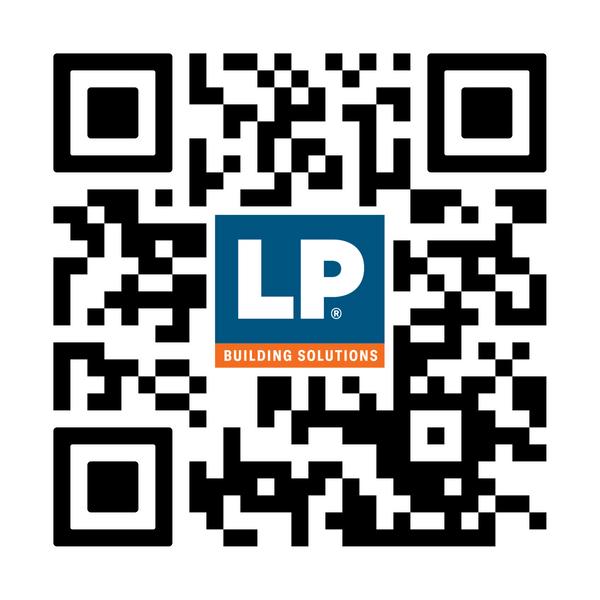
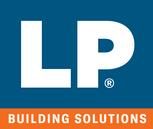

By George Allen, CPM Emeritus, MHM-Master
An early history of manufactured housing & land lease communities through the eyes of a pioneer, as penned in his autobiography
Horatio Alger (1832-1899) novels routinely described young men, rising from humble beginnings to career success via hard work, luck, and morality. Well, manufactured housing, during the past century, enjoyed its share of “rags to riches” stories and legends. Foremost among these entrepreneurs is the Danish immigrant Kristian Jensen, Sr., succeeded by his son Kristian Jensen, Jr., and grandson Kristian Jensen III, well into the 21st century.
So, how do we know the Kristian Jensen, Sr., ‘Horatio Alger’- like tale? From his crude (no publishing date, no page numbers) but highly readable autobiography, “A Danish American”. Plus, I found a typed letter tucked into the pages of this book, written by Kristian to Pete Callander, at the now defunct Old Timers Club in Elkhart, Indiana. In it, Kristian summarizes his business career in this fashion: “March 1, 1996, will be the first day of my 70th year in business.
In February 1936 we took the distributorship for Covered Wagon trailers. Now we have 27 (manufactured home) communities on the eastern seaboard from New Hampshire to Georgia. Sixteen with houses and single sections, eleven with all houses.” Quite an accomplishment for this businessman who’s also an RV/ MH Hall of Fame enshrinee.
To learn how Kristian Jensen, Sr., effected these crowning achievements, we’ll follow his lifelong journey in his book, from his boyhood in Denmark to his migration to the U.S. in 1925.
His first job, at five years of age, was as a cowherd: “The cows needed to be moved three times in the morning and three times in the afternoon, six days a week, so they moved into longer grass.” School? “At six years old, I went to school in the winter months. I walked with my sisters about a mile to get to school. All the children wore wooden shoes to school and then placed them in
a rack in the entrance hall. We all wore slippers in the classroom.”
“At 14, I graduated from the 7th grade with a grade of M.G., which stands for ‘Much Good’. I had expected an M.D., which stands for ‘Much Dumb’.”
First jobs after school? “I took a job as an apprentice to be an auto mechanic in Olgod; without salary, but with board and room.”
“At age 18 I got my driver’s license… and God also told me to go to America.” Kristian worked as a driver at the time, and offers this observation: “Being a driver was fashionable and the girls liked it; however, I never took out a girl in Denmark. I did not have time or the money for girls; earning the ticket to America was more important.”
Kristian often prayed for direction. Here are some of those times: “I prayed to God to help me to learn the language soon and to do good work. When I started the business, I prayed to God to give me wisdom to do right to all people who gave me work.” and “…when thinking about plans and construction of mobile home parks from 1948 to 1950, there were no schools to teach it. For a number of years, no one really had any experience in that field. The knowledge had to come from one place — me. God never failed me. Thanks be to God!”
Inger Hansen and Kris married in December 1932 during the Great Depression. Here’s how he experienced life then: “No one had any money. Car salesmen tried only to sell cars to people with firm salaries able to make monthly payments. I took a gamble on 8,000 Christmas trees that year to sell in front
of our car business. On our wedding day I worked to about 5 o’clock, then went home to wash and change clothes. I went to 53 Monroe St., in Hartford, Inger’s home, where we got married by Pastor Valdemar Jensen. Six years later we went on our honeymoon.”
The business was not without its difficulties.
“We kept losing managers to the Army. So (we) moved into a small camping trailer in Trailer City so we could be the managers. We stayed there for two years. Inger sold the gas to the people and collected the rent money.”
“In the later 1940s we bought Oak Grove Trailer Camp, in Plainville, CT., and converted it into a mobile home park.” and “In 1948, Jensen’s Inc., changed from selling trailers to the mobile home business. A little later we switched to developing retirement villages, but during this early stage we called them mobile home parks and were now out of the trailer camp business.”
“I fought our industry to change from camps to parks. The camp operators said parks would price us out of the business. The manufacturers said it would bring our industry under housing regulations. A large meeting was called by Professor Carl Edwards to be held at Michigan State University for manufacturers and park operators from coast to coast. The concept of developing ‘parks’ for mobile homes rather than camps for trailers) was finally accepted by acclamation.”
Continuing this line of recollection, “In the 1960s, our houses continued
to be made longer until they reached 72 feet. Then the makers tried to make them wider and expandable. Finally, they made houses, but the early product was a bit crude. The houses became better and better until they were equal to site built homes, or even better. Prices kept increasing, but still stayed below the prices of site built houses.”
Ending this story with a mystery, he says: In the late 1960s, I was inducted into the ‘Hall of Fame’ by the Mobile Home Association Hall of Fame Board. A few of the advanced manufacturers and a few outstanding people in our industry were in the first class inducted. I was the only park-dealer in the group. This was mostly for what I did to get parks accepted by our industry. The induction banquet was held at the Notre Dame University in South Bend, Indiana. I was the first mobile home park operator in America with that honor.” Now here’s the mystery. Is the Hall of Fame Kristian references in this paragraph, one and the same with the RV/MH Hall of Fame, founded in March of 1972, or not? Its first class of inductees occurred during 1972, with Kristian part of that group. Or, is Kristian referencing an entirely different MH trade entity? In either instance, Kristian was certainly a deserving inductee.
This mystery opens the door to the following announcement. During the past year, research was conducted pursuant to preparation of a complete and comprehensive history of the RV/MH Hall of Fame in Elkhart. Core to this work has been the written works of the late Dr. Carlton Edwards, also an RV/ MH Hall of Fame enshrinee, my book »
“Swan Song”, a history of the land lease community real estate asset class, and the late Bruce Savage’s “The First 20 Years” history of MHI’s National Communities Council division.
The late Dr. Carl Edwards, once the official historian of manufactured housing, is well known for “Homes for Travel & Living”, an industry classic to this day. He also authored an unbound “History of the Recreation Vehicle and Manufactured Housing Foundation” in 1994, covering the period from 1973 through 1993.
Interestingly, “A Danish American” is not for sale. The only known copies are archived in the RV/MH Hall of Fame library. I hope you enjoyed this history walk through past years in the MH indus try and communities. Would you believe
15 years would pass before another MH industry pioneer authored his autobiography? That would be RV/MH Hall of Fame enshrinee John Crean, founder of Fleetwood Enterprises, co-authoring with Jim Washburn, “The Wheel & I”. Hmm. Wonder if you’d like to read some passages from that unique tome; unique in that it is case bound with a carved front cover and boxed. Let me know…
If you know of additional resources dealing with the histories of recreational vehicles and manufactured housing, please let me know via gfa7156@aol.com MHV
George Allen is a nonfiction author, internet blogger, and magazine columnist with expertise in manufactured housing and land-lease communities.
Republic of Vietnam and service during Desert Storm. Read his autobiography, “FromSmittyAlpha6 to MHMaven” available via www.educatemhc.com, and also his “Chapbook of Prayer” and “Chapbook of Business Management & Wisdom” as well as other interesting titles. Allen can be reached at gfa7156@ aol.com, (317) 881-3815 & GFA c/o Box # 47024, Indianapolis, IN. 46247.
